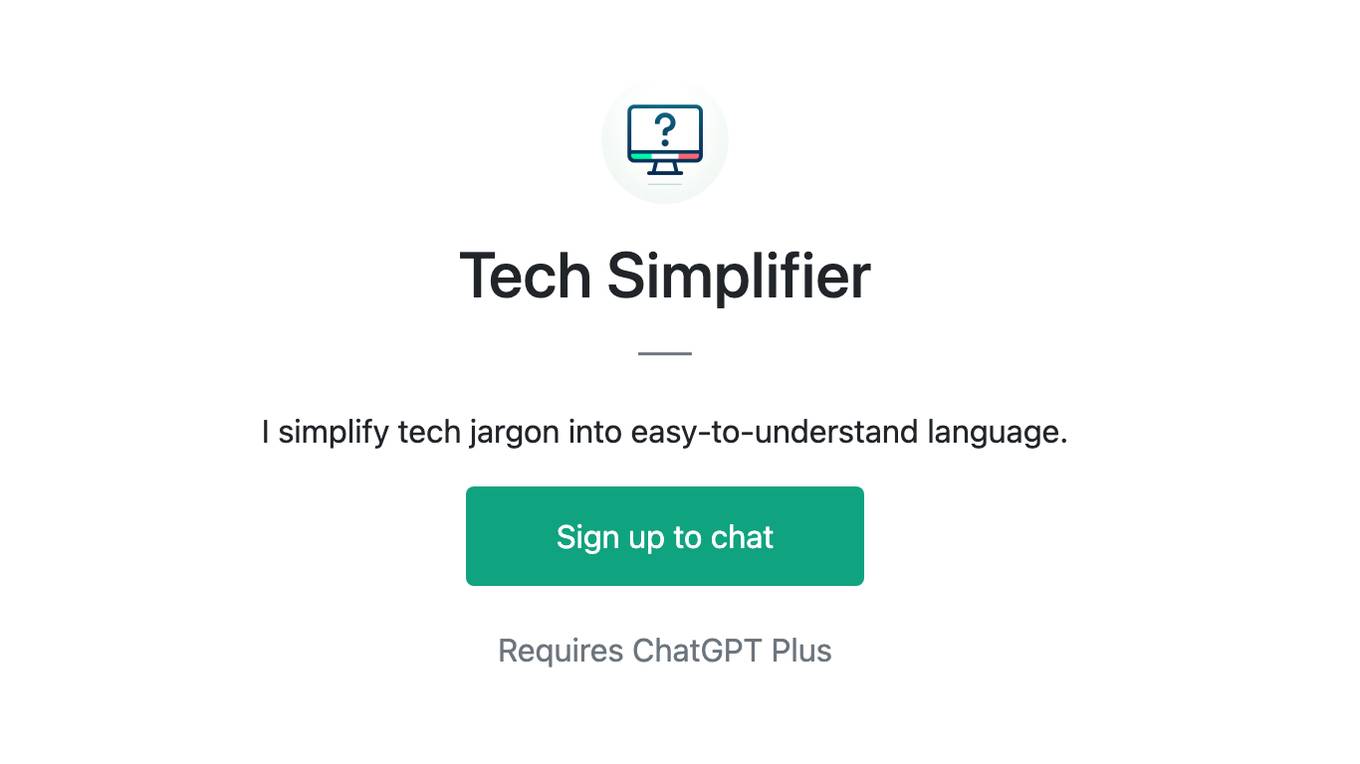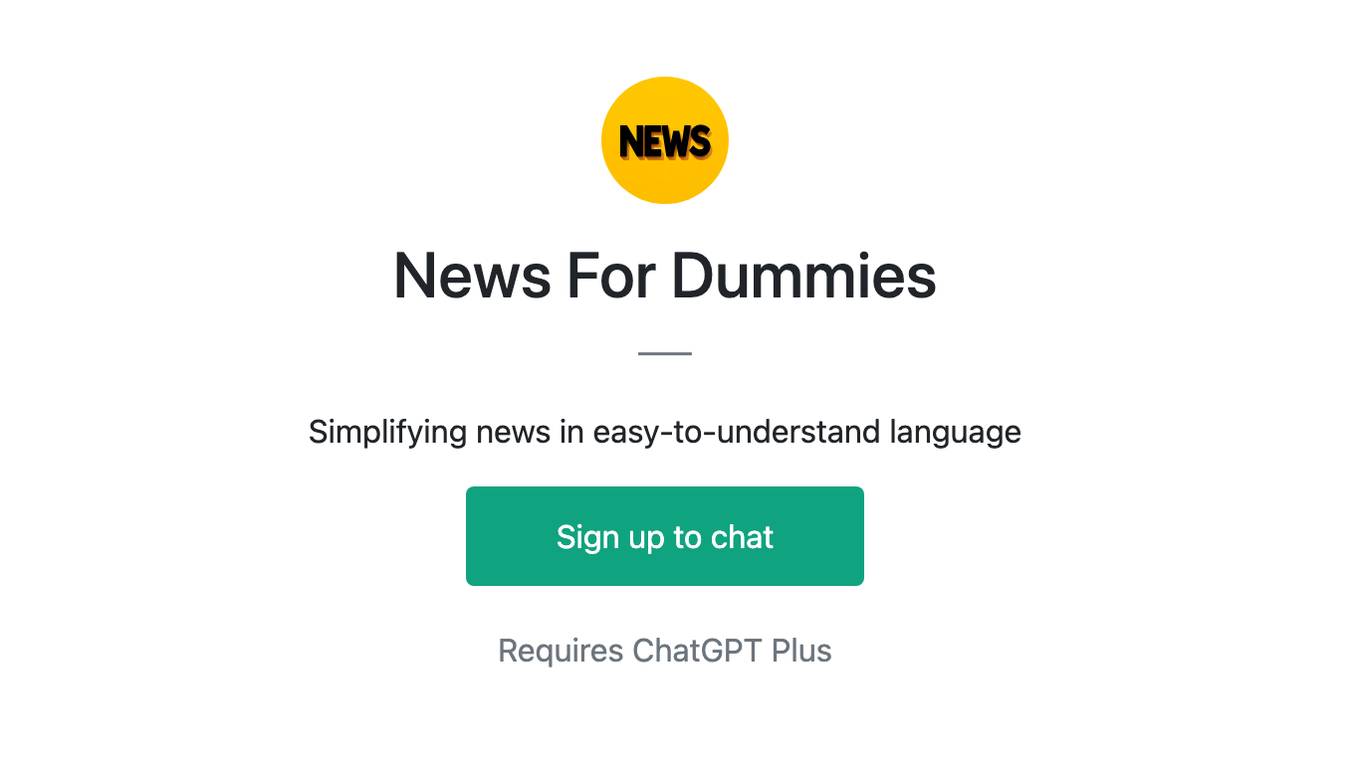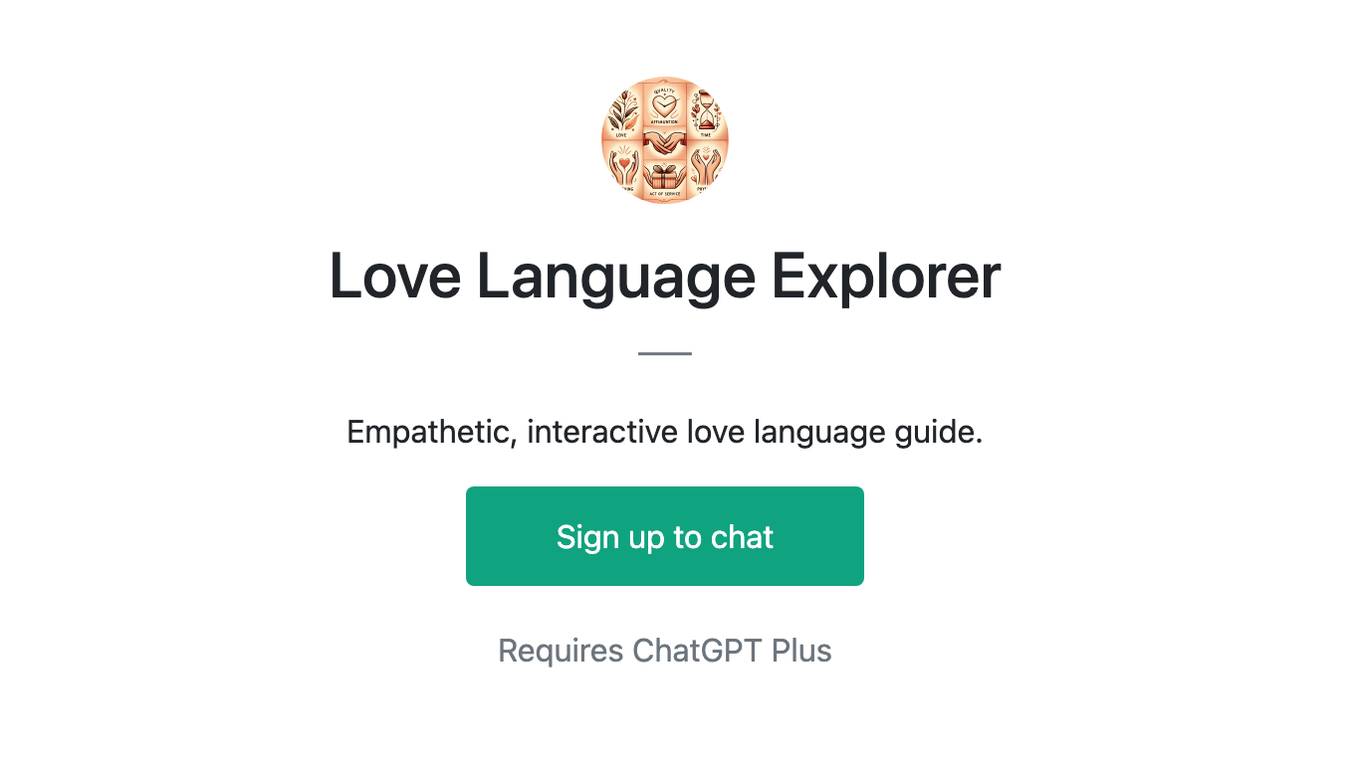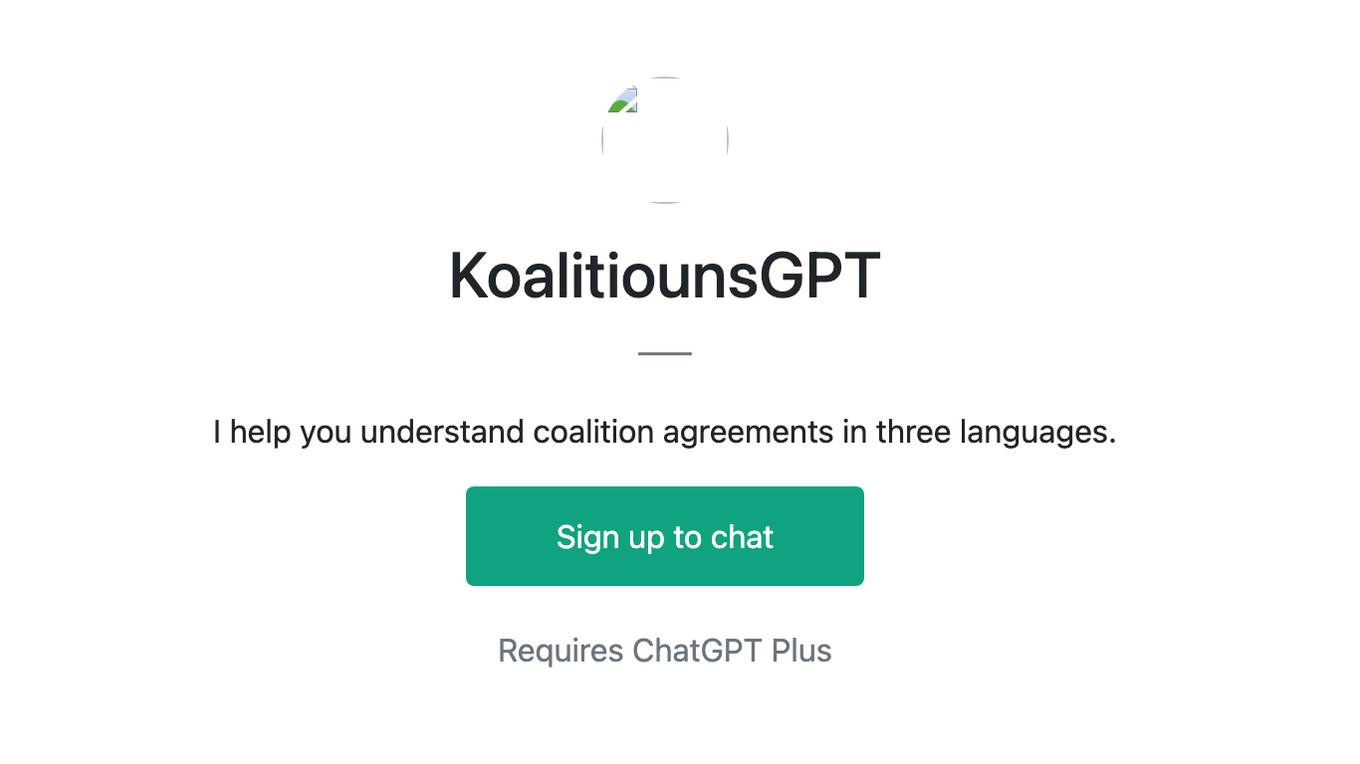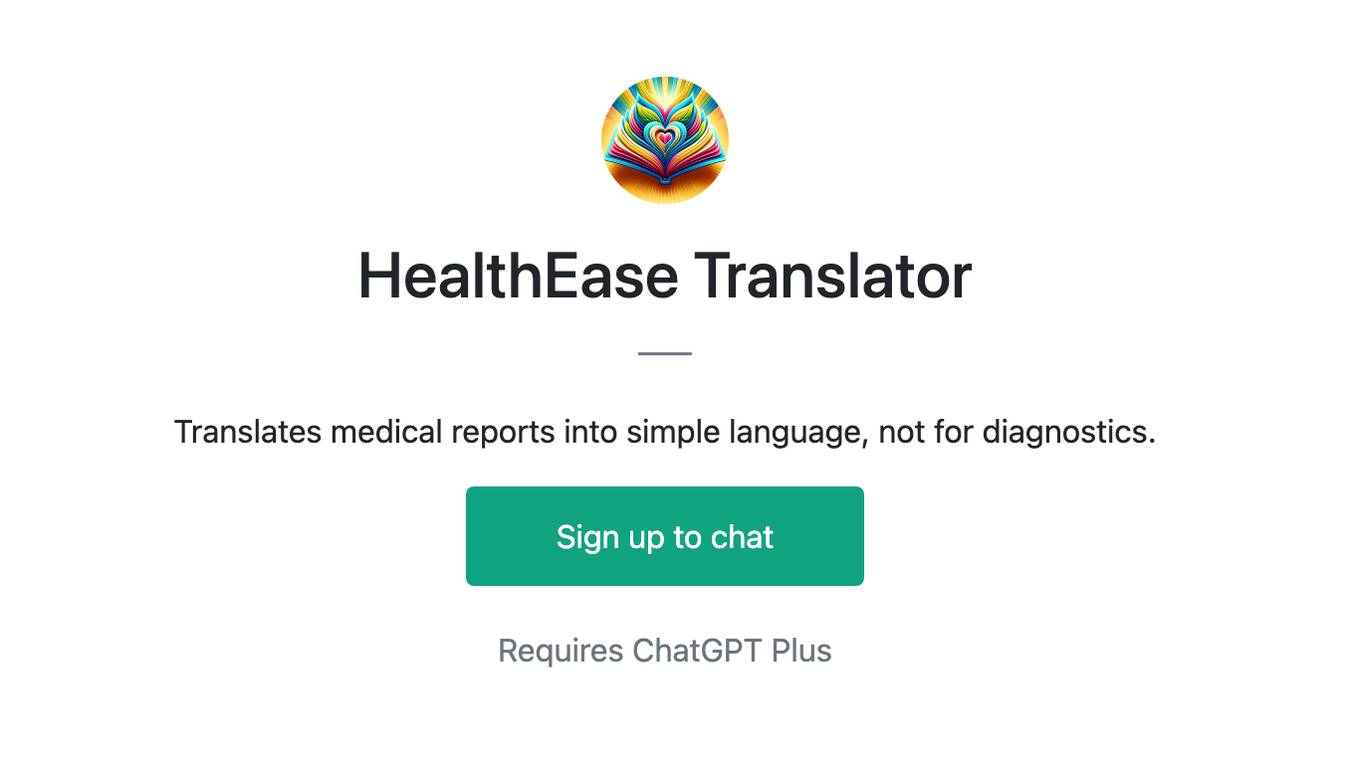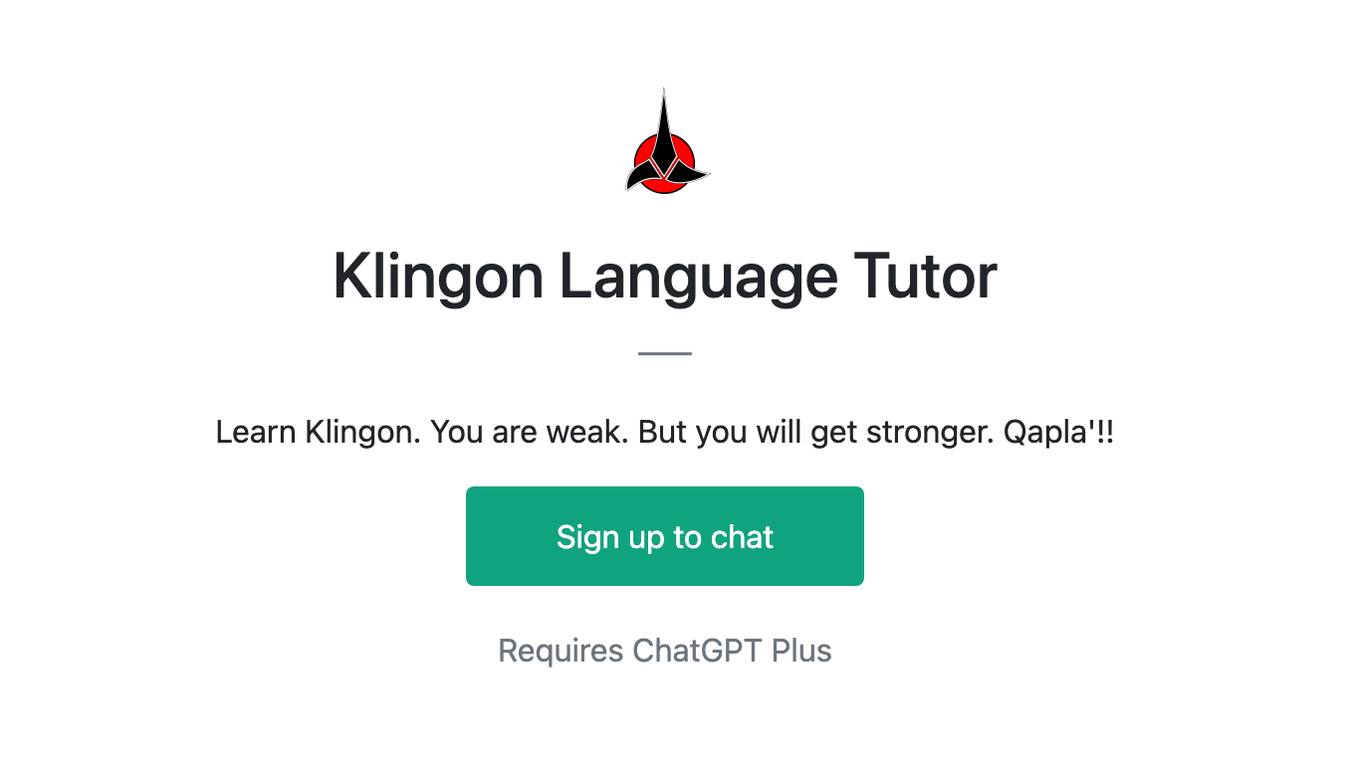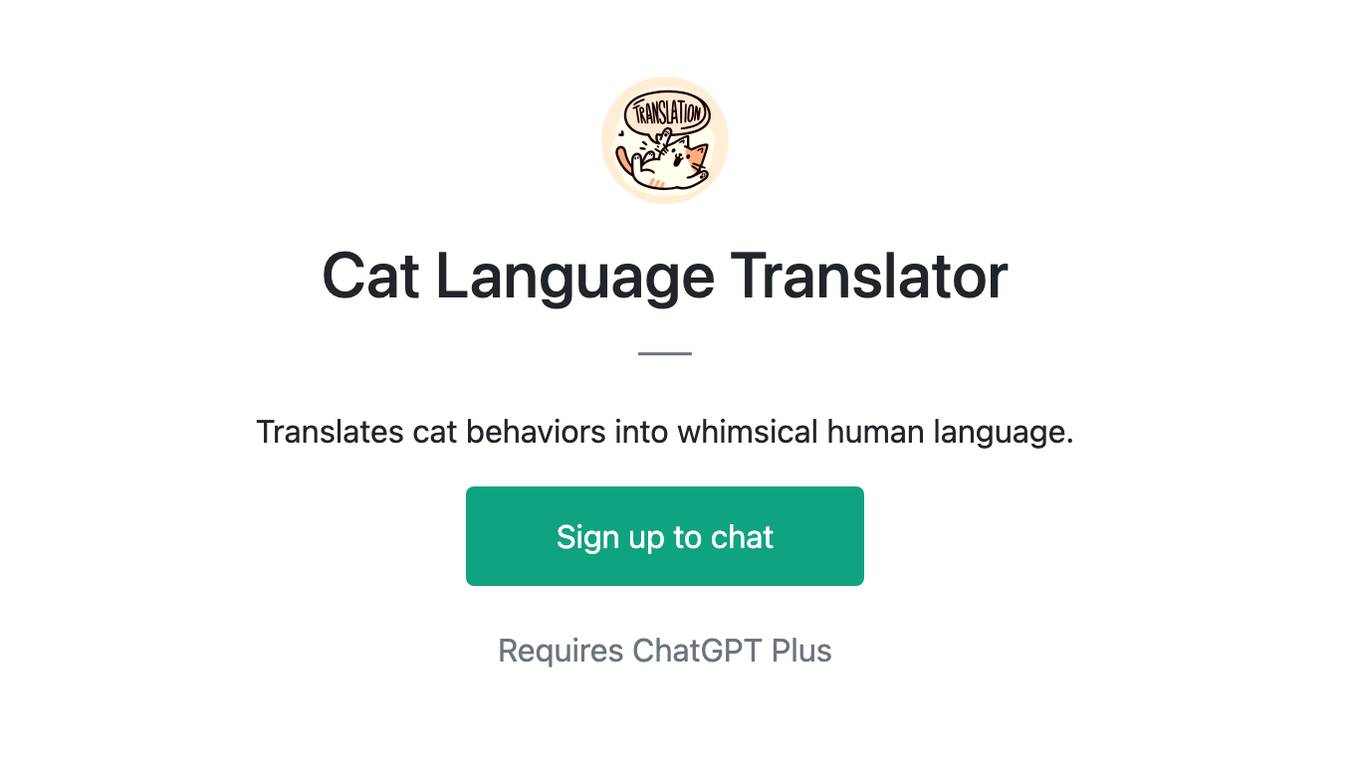Best AI tools for< Understand Language >
20 - AI tool Sites
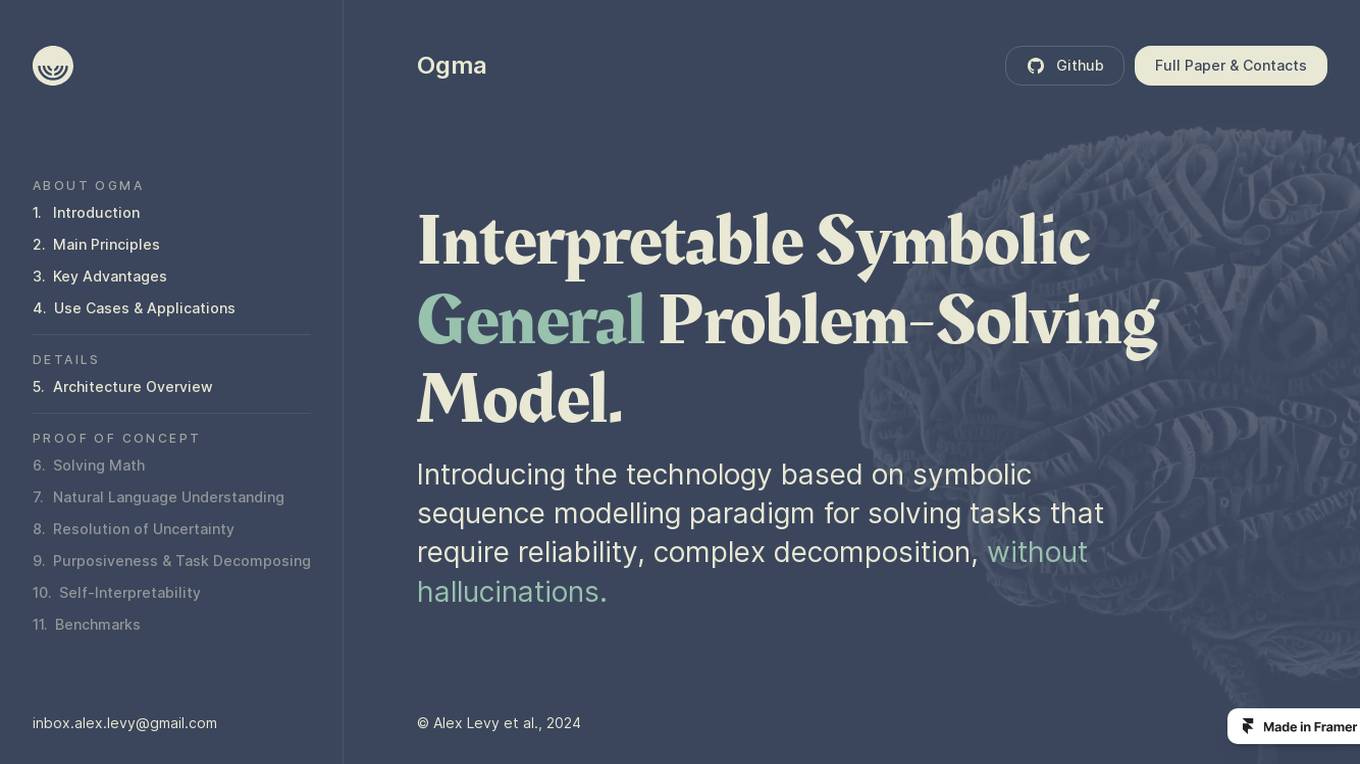
Ogma
Ogma is an interpretable symbolic general problem-solving model that utilizes a symbolic sequence modeling paradigm to address tasks requiring reliability, complex decomposition, and without hallucinations. It offers solutions in areas such as math problem-solving, natural language understanding, and resolution of uncertainty. The technology is designed to provide a structured approach to problem-solving by breaking down tasks into manageable components while ensuring interpretability and self-interpretability. Ogma aims to set benchmarks in problem-solving applications by offering a reliable and transparent methodology.
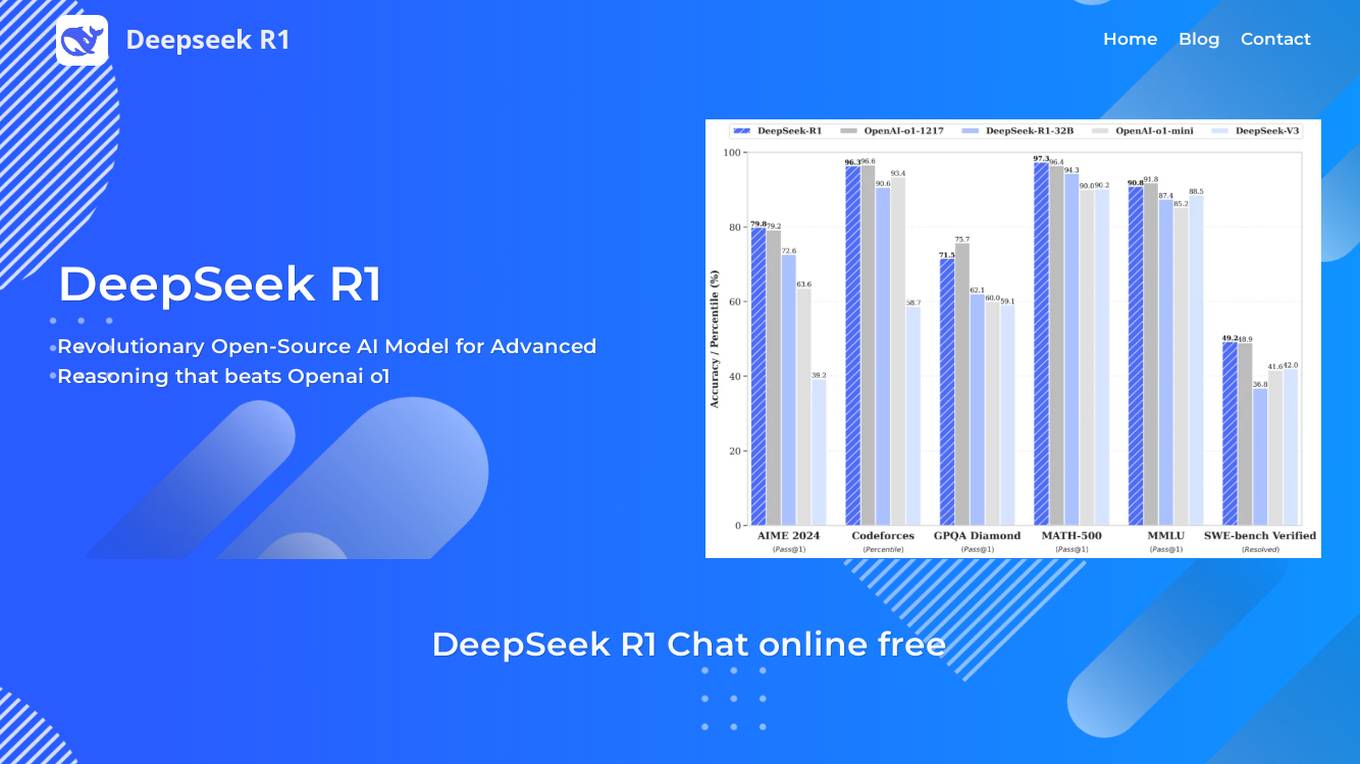
DeepSeek R1
DeepSeek R1 is a revolutionary open-source AI model for advanced reasoning that outperforms leading AI models in mathematics, coding, and general reasoning tasks. It utilizes a sophisticated MoE architecture with 37B active/671B total parameters and 128K context length, incorporating advanced reinforcement learning techniques. DeepSeek R1 offers multiple variants and distilled models optimized for complex problem-solving, multilingual understanding, and production-grade code generation. It provides cost-effective pricing compared to competitors like OpenAI o1, making it an attractive choice for developers and enterprises.
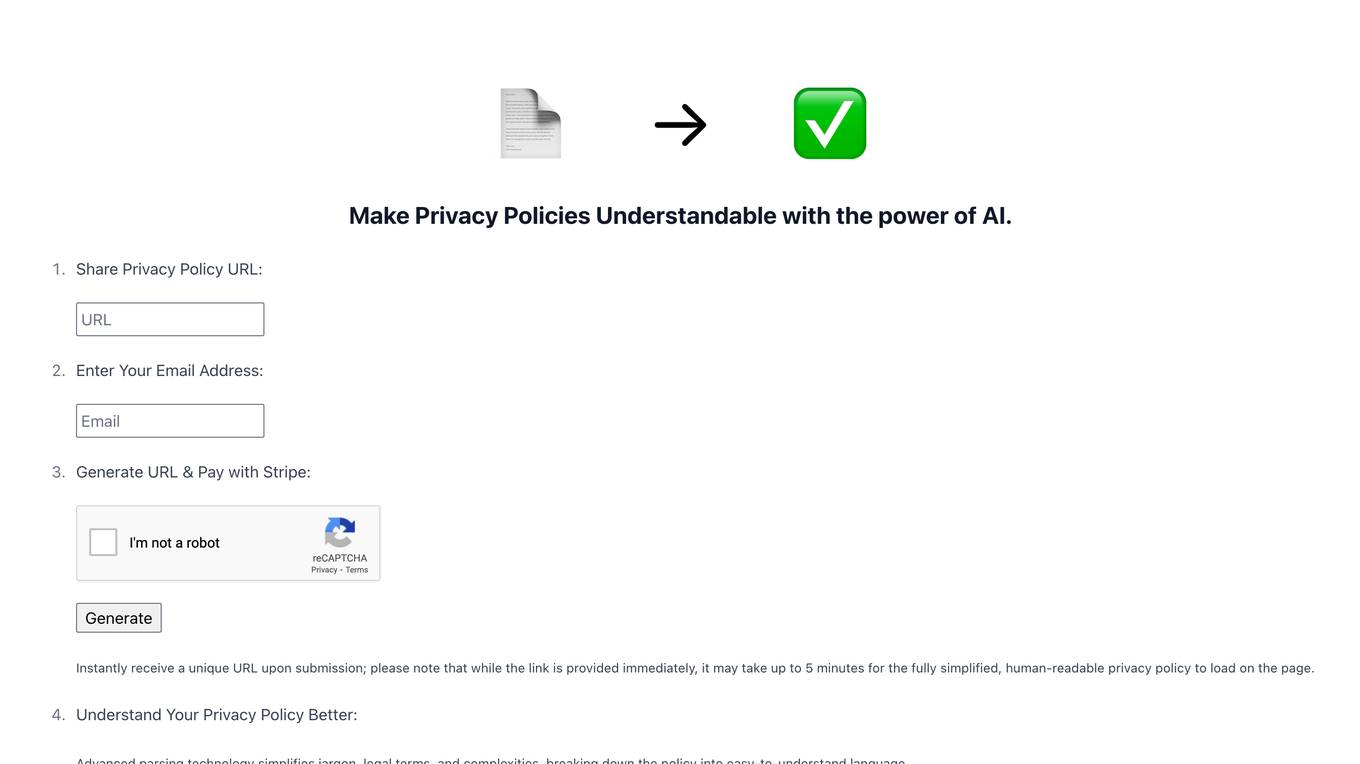
Parsepolicy
Parsepolicy is an AI-powered tool that aims to make privacy policies more understandable for users. By utilizing advanced parsing technology, the tool simplifies legal terms, jargon, and complexities in privacy policies, breaking them down into easy-to-understand language. Users can generate a unique URL by entering their email address and paying with Stripe, receiving a simplified, human-readable privacy policy within minutes. The tool helps users gain insights into how their data is handled, understand their rights, and make informed decisions to protect their privacy online. Privacy and data security are top priorities, with cutting-edge encryption and secure protocols in place to ensure the confidentiality of personal information. Currently, the website is at the MVP stage.
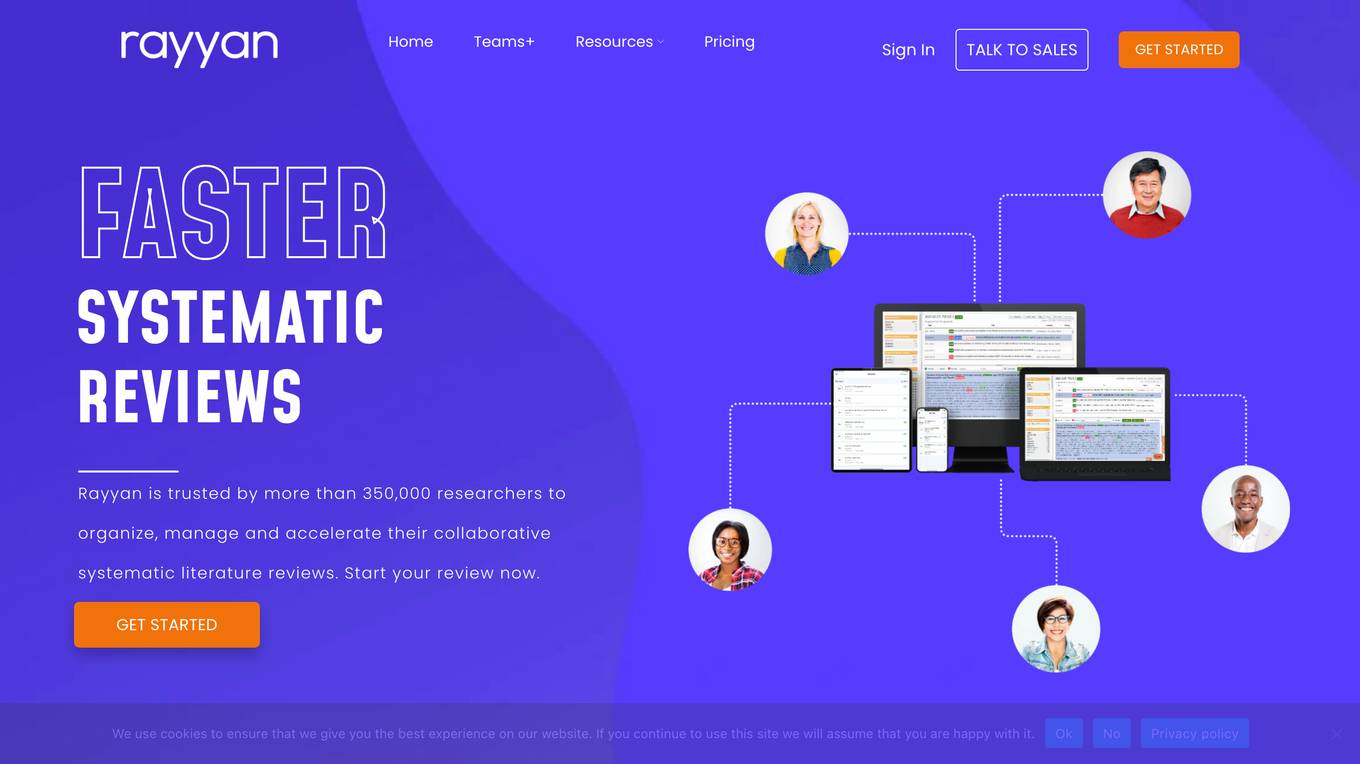
Rayyan
Rayyan is an intelligent systematic review tool trusted by over 500,000 researchers worldwide. It helps users organize, manage, and accelerate collaborative systematic literature reviews. Rayyan empowers users to work remotely and collaborate with distributed research teams, offering membership packages with onboarding, training, and priority support. The tool is designed to understand language, learn from user decisions, and facilitate quick navigation through systematic reviews. Rayyan also provides solutions for organizations and businesses to streamline research processes and save valuable researcher time.

Immerse
Immerse is a virtual reality (VR) language learning platform that offers live classes, AI-powered conversation practice, and a variety of interactive learning experiences. With Immerse, you can practice speaking, listening, reading, and writing in a fun and engaging way. Immerse is designed to help you learn a new language quickly and effectively, and it is suitable for all levels of learners, from beginners to advanced speakers.
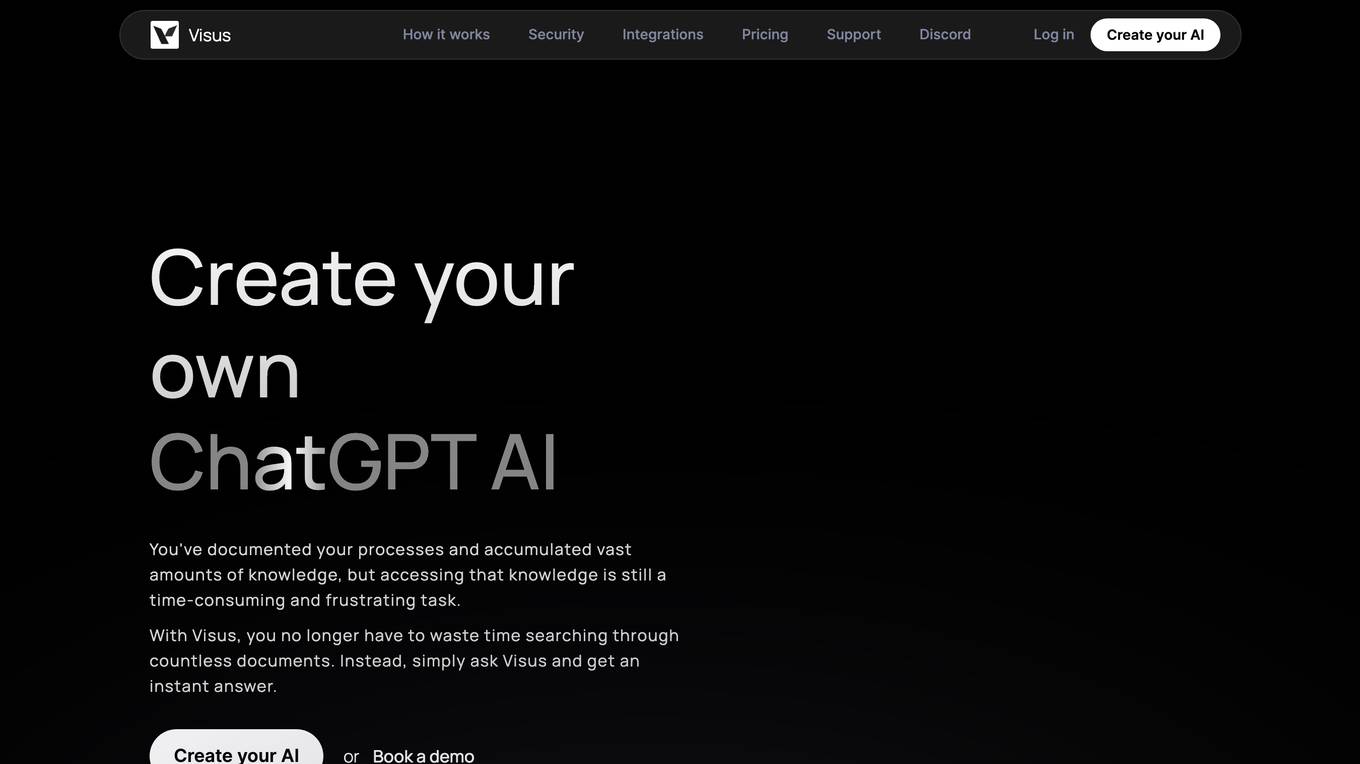
Visus
Visus is a tool that allows you to create your own ChatGPT AI. With Visus, you can train your AI on your own data, ask it questions, and get instant answers. Visus is designed to understand your language and provide quick and accurate responses to any question you may have about your documents. It can help you uncover valuable insights from your data quickly and effortlessly.
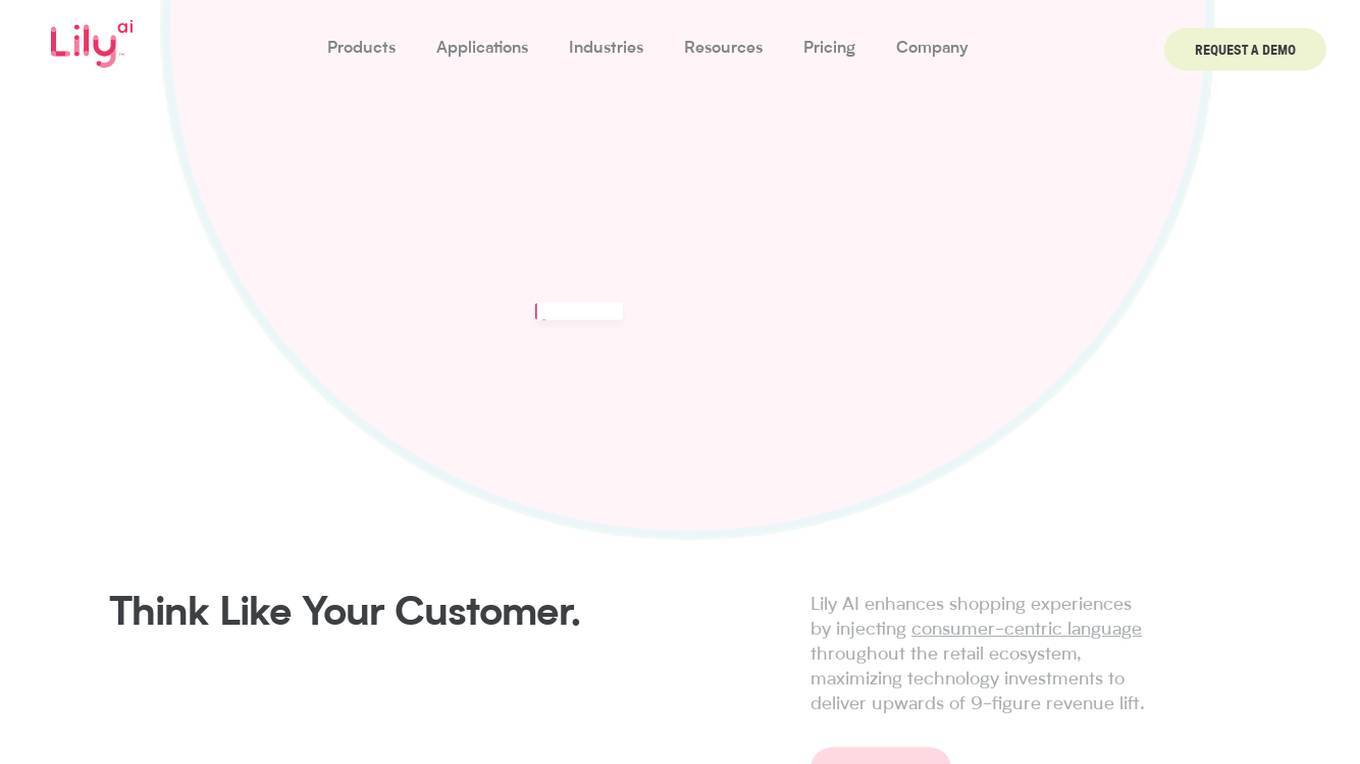
Lily AI
Lily AI is an e-commerce product discovery platform that helps brands increase sales and improve customer experience. It uses artificial intelligence to understand the language of customers and inject it across the retail ecosystem, from search to recommendations to demand forecasting. This helps retailers connect customers with the relevant products they're looking for, boost product discovery and conversion, and increase traffic, conversion, revenue, and brand loyalty.
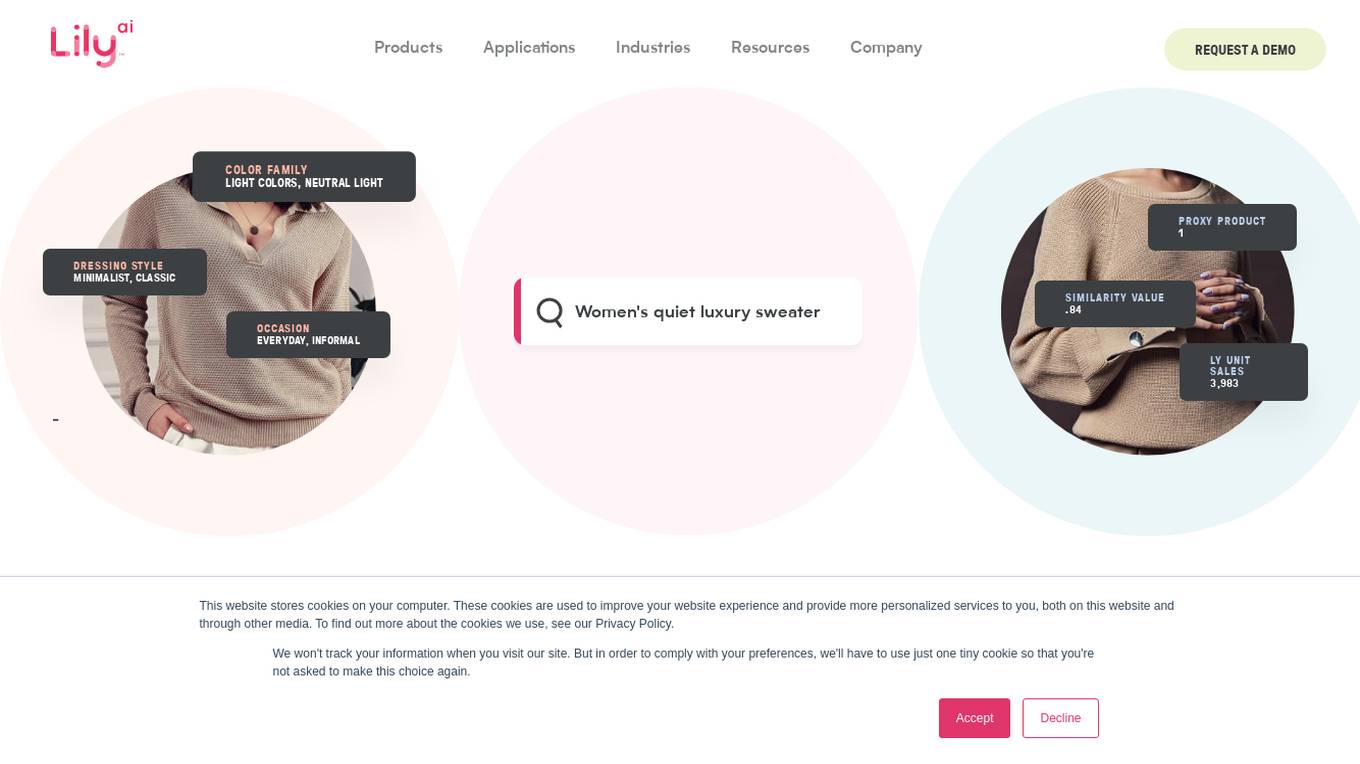
Lily AI
Lily AI is an e-commerce product discovery platform that helps brands increase sales and improve customer experience. It uses artificial intelligence to understand the language of customers and inject it across the retail ecosystem, from search to recommendations to demand forecasting. Lily AI's platform is purpose-built for retail and turns qualitative product attributes into a universal, customer-centered mathematical language with unprecedented accuracy. This results in a depth and scale of attribution that no other solution can match.
Spheroid AI Avatars
Spheroid AI Avatars is a platform that allows users to create and customize interactive digital characters that can see, speak, converse, and understand natural language. These avatars can be used for various purposes, such as customer service, entertainment, education, and more. Spheroid AI Avatars can be placed anywhere in the world using augmented reality, allowing users to interact with them in a more immersive and engaging way.
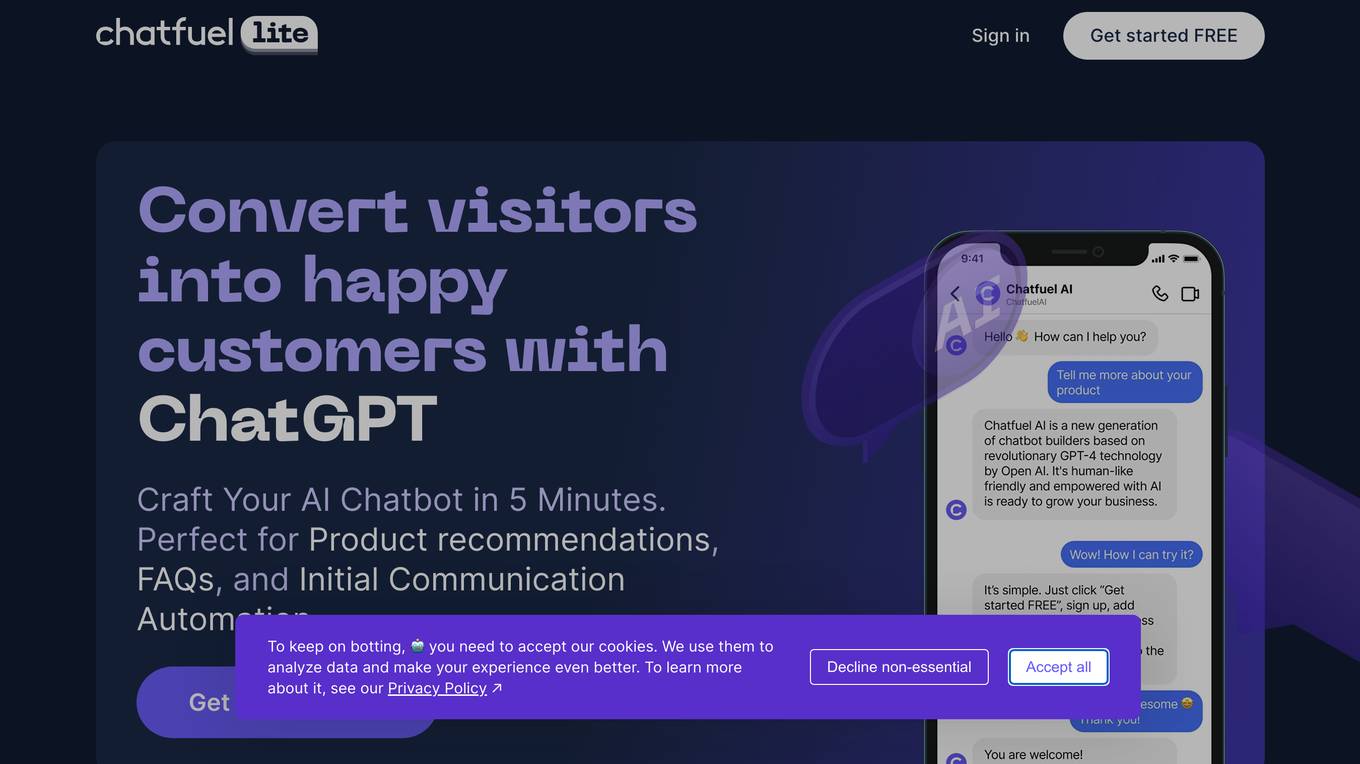
Chatfuel Lite
Chatfuel Lite is a user-friendly platform that allows businesses to create chatbots for their websites and social media platforms. These chatbots can be used to automate customer service, answer FAQs, and generate leads. Chatfuel Lite is powered by artificial intelligence, which enables its chatbots to understand natural language and respond in a human-like manner. The platform is easy to use, even for those with no coding experience. Chatfuel Lite offers a variety of features, including pre-built templates, drag-and-drop functionality, and analytics. It also integrates with a variety of third-party platforms, such as Salesforce and Zendesk.
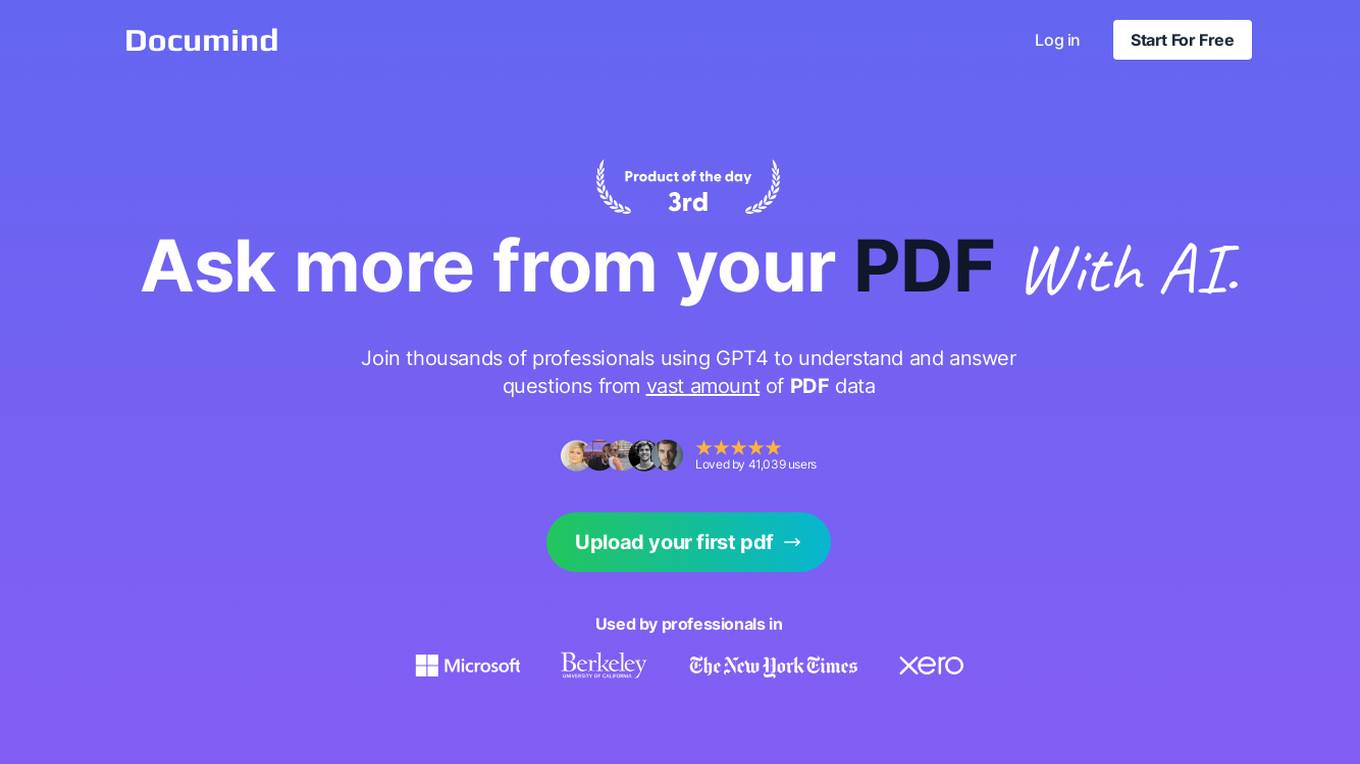
Chat With PDF AI Tool
The Chat With PDF AI Tool is an innovative application that allows users to interact with PDF documents using artificial intelligence technology. Users can engage in conversations with the AI tool to extract information, ask questions, and receive instant responses. The tool simplifies the process of working with PDF files by providing a conversational interface, making it user-friendly and efficient. With its advanced AI capabilities, the tool can understand natural language queries and provide accurate results, enhancing productivity and workflow efficiency.
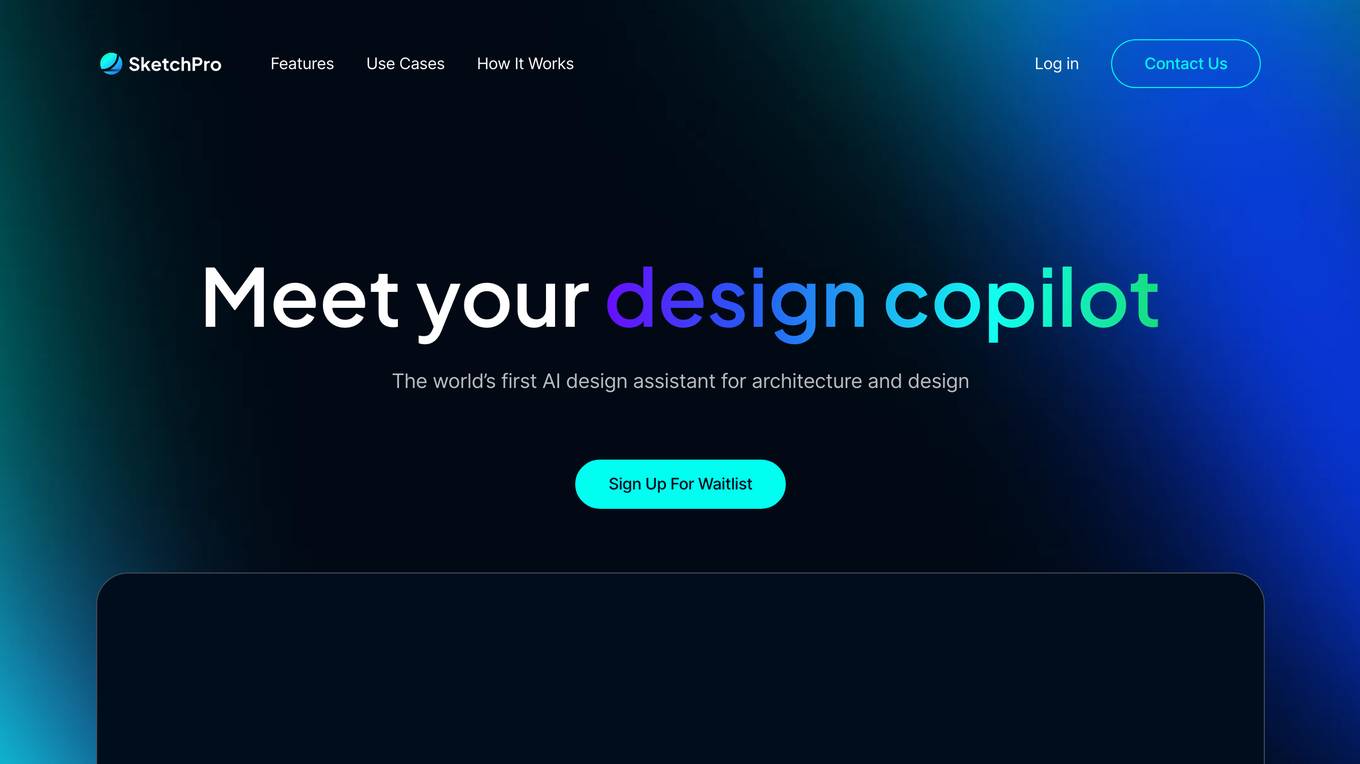
SketchPro
SketchPro is the world's first AI design assistant for architecture and design. It allows users to create realistic 3D models and visualizations from simple sketches, elevations, or images. SketchPro is powered by AI, which gives it the ability to understand natural language instructions and generate designs that are both accurate and visually appealing. With SketchPro, architects and designers can save time and effort, and explore more creative possibilities.
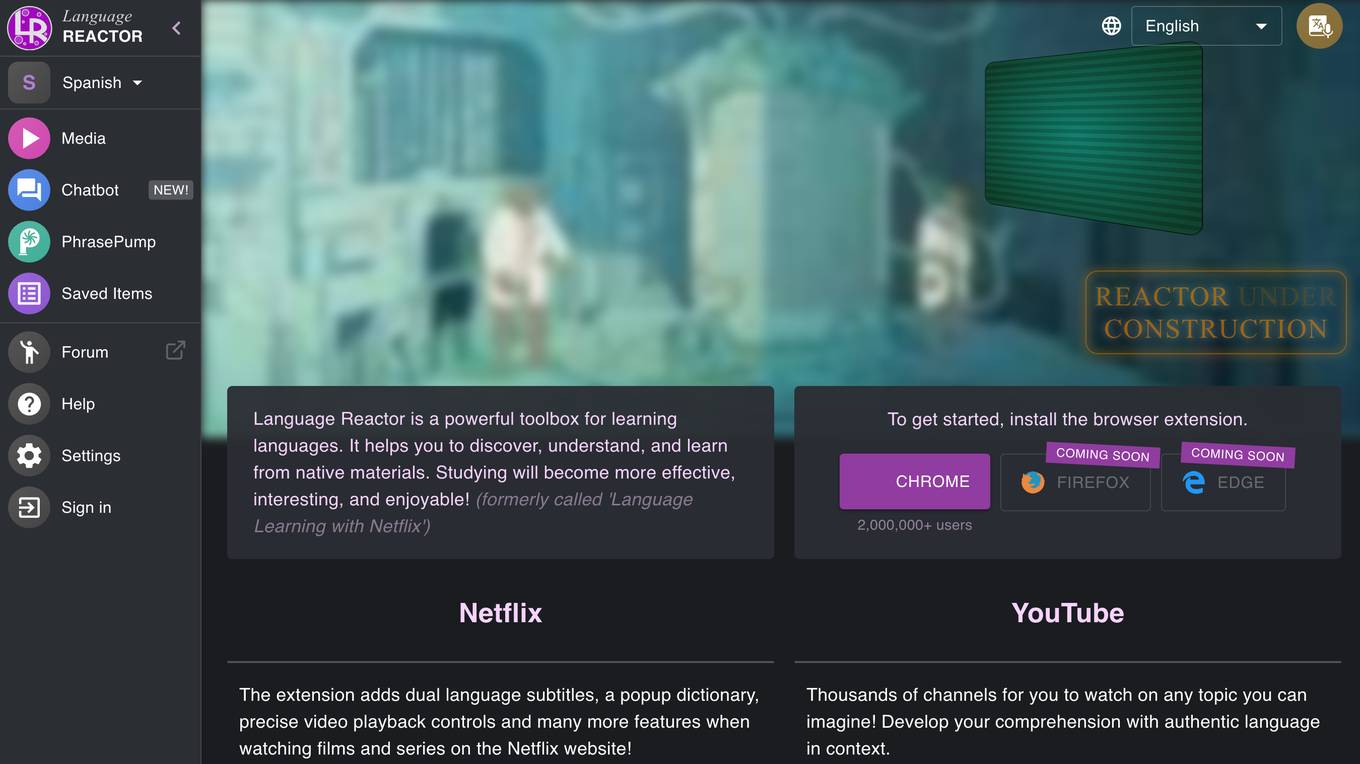
Language Reactor
Language Reactor is a web application that helps users learn foreign languages by watching videos with interactive subtitles. Users can hover over any word in the subtitles to see its translation, definition, and pronunciation. They can also click on any word to add it to their vocabulary list. Language Reactor also offers a variety of exercises to help users practice their listening, speaking, reading, and writing skills.
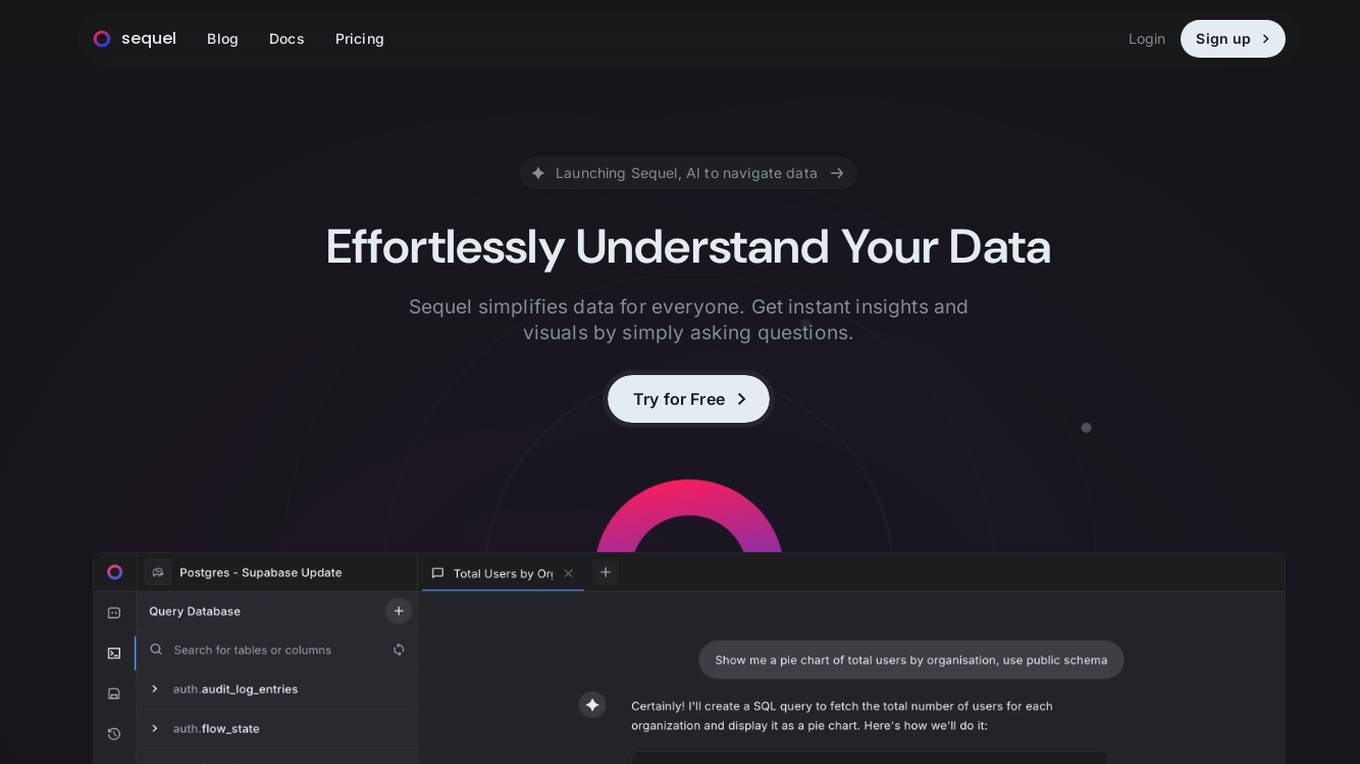
Sequel
Sequel is an AI-powered tool that serves as a natural language interface for databases, allowing users to effortlessly navigate and understand their data without the need to write complex SQL queries. By simply asking questions in plain English, users can quickly obtain insights and visualizations from their database. The tool supports a wide range of databases and services, ensuring users can connect to their existing database securely and efficiently. Sequel's AI capabilities enable users to generate SQL queries, uncover insights, and make better decisions based on the data analysis.

xAI Grok
xAI Grok is a visual analytics platform that helps users understand and interpret machine learning models. It provides a variety of tools for visualizing and exploring model data, including interactive charts, graphs, and tables. xAI Grok also includes a library of pre-built visualizations that can be used to quickly get started with model analysis.
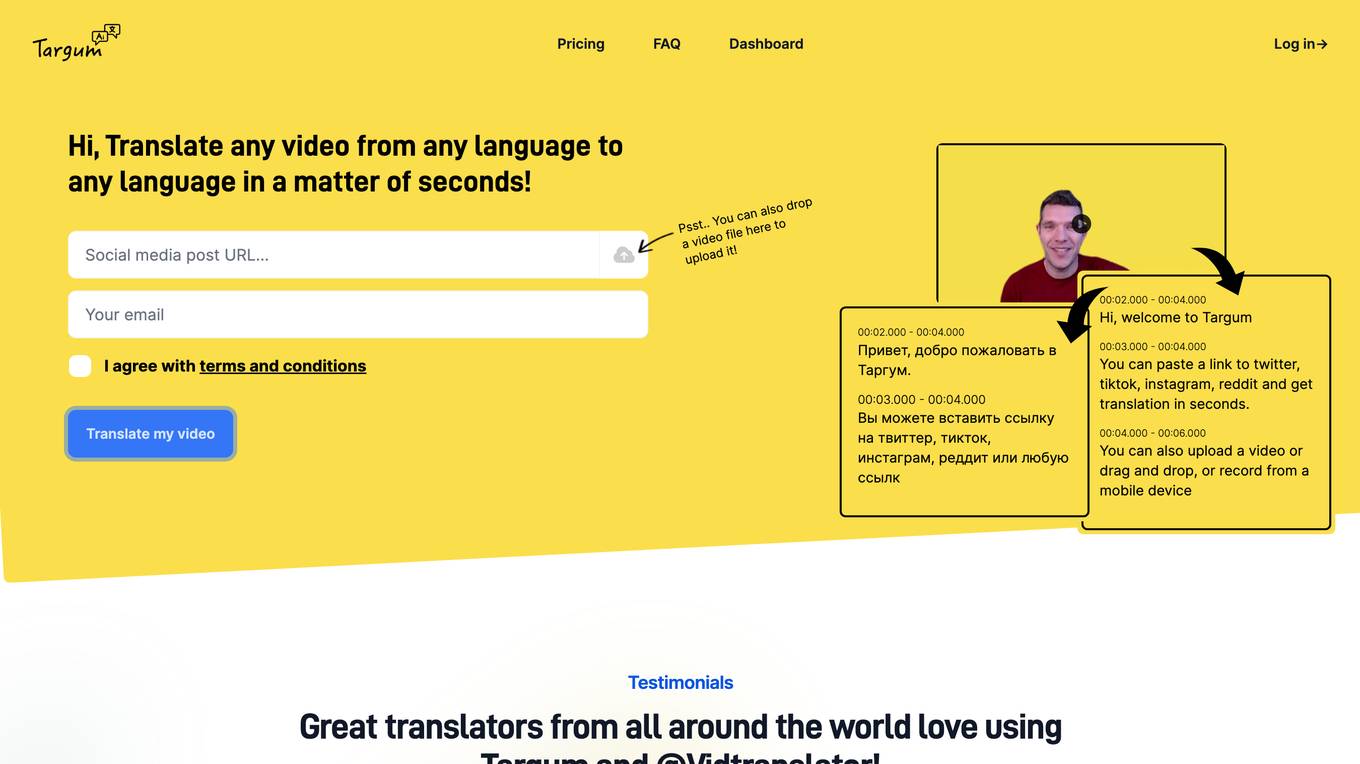
Targum
Targum is a super fast AI-based video translation service that allows users to translate any video from any language to any language in a matter of seconds. Users can paste a link to a video from Twitter, TikTok, Instagram, or Reddit, or they can upload a video file or drag and drop it onto the Targum website. Targum also allows users to record a video from a mobile device. Once a video has been uploaded, Targum will automatically translate it to the user's desired language. Targum is a valuable tool for anyone who needs to translate videos for personal or professional use.
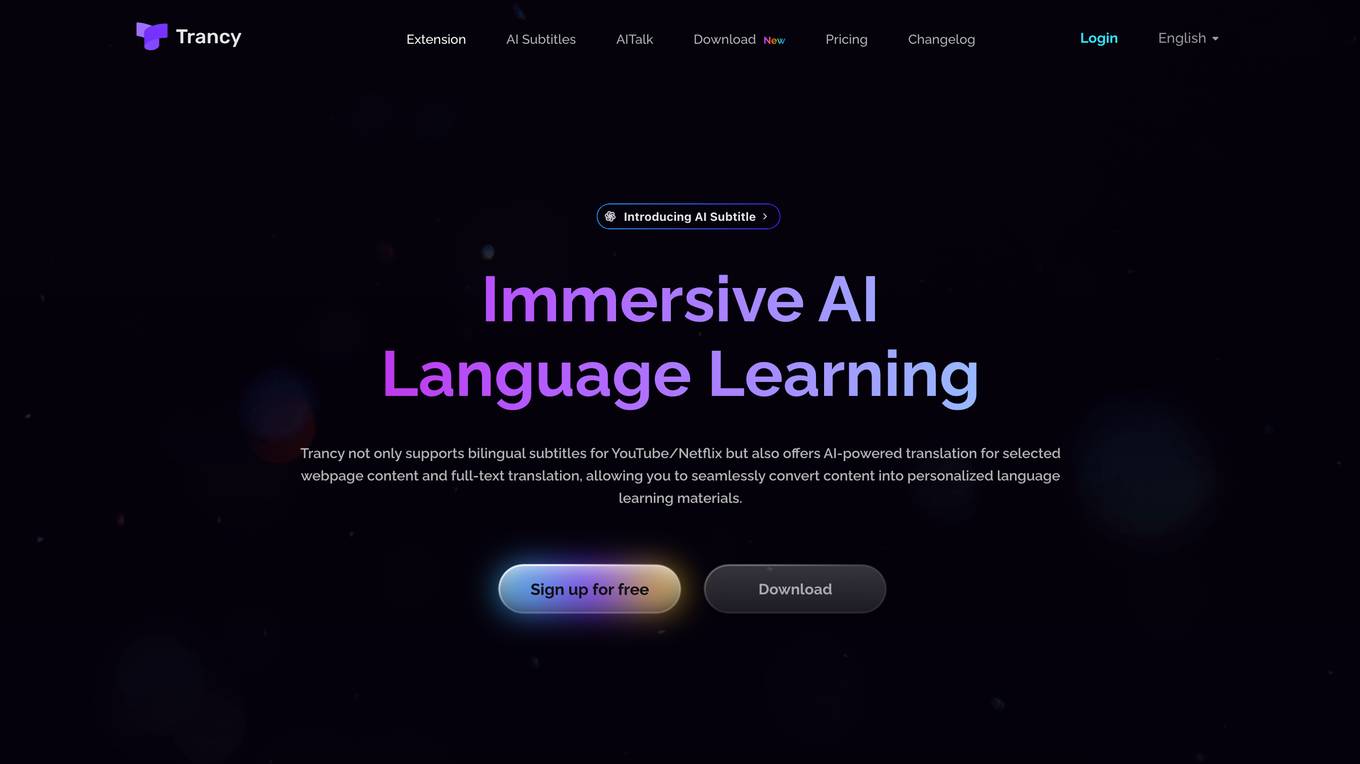
Trancy
Trancy is an AI-powered application that offers bilingual subtitles for YouTube and Netflix, AI translation for webpages, and full-text translation services. It supports immersive language learning by providing accurate translations, grammar analysis, and sentence segmentation. Users can practice listening and speaking with videos, look up unfamiliar words, and translate sentences effortlessly. Trancy also features customizable translation engines, compatibility with various websites, and tools for creating personalized learning decks. With features like speed playback, word highlight, and lifelike text-to-speech, Trancy aims to enhance language learning experiences and break down language barriers.

One-Stop Natural Language Hotel Recommender
The One-Stop Natural Language Hotel Recommender is an AI-powered tool that simplifies the process of finding the perfect hotel for your needs. By utilizing natural language processing technology, the tool can understand your preferences and requirements, and provide you with personalized hotel recommendations. It considers factors such as proximity to popular places, top-rated establishments, summarized reviews, and staying within your budget. With this tool, you can easily find the ideal accommodation for your next trip without the hassle of extensive research.
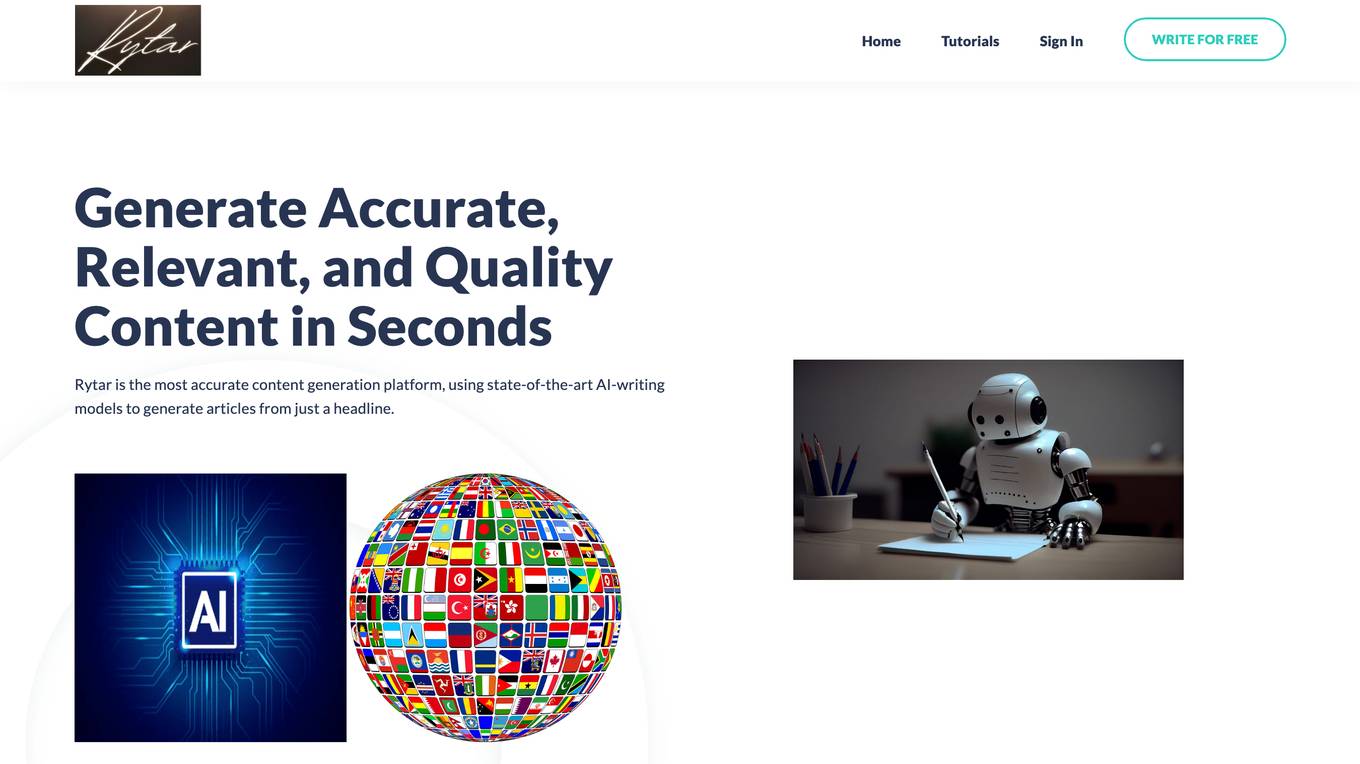
Rytar
Rytar is an AI-powered writing platform that helps users generate unique, relevant, and high-quality content in seconds. It uses state-of-the-art AI writing models to generate articles, blog posts, website pages, and other types of content from just a headline or a few keywords. Rytar is designed to help users save time and effort in the content creation process, and to produce content that is optimized for SEO and readability.
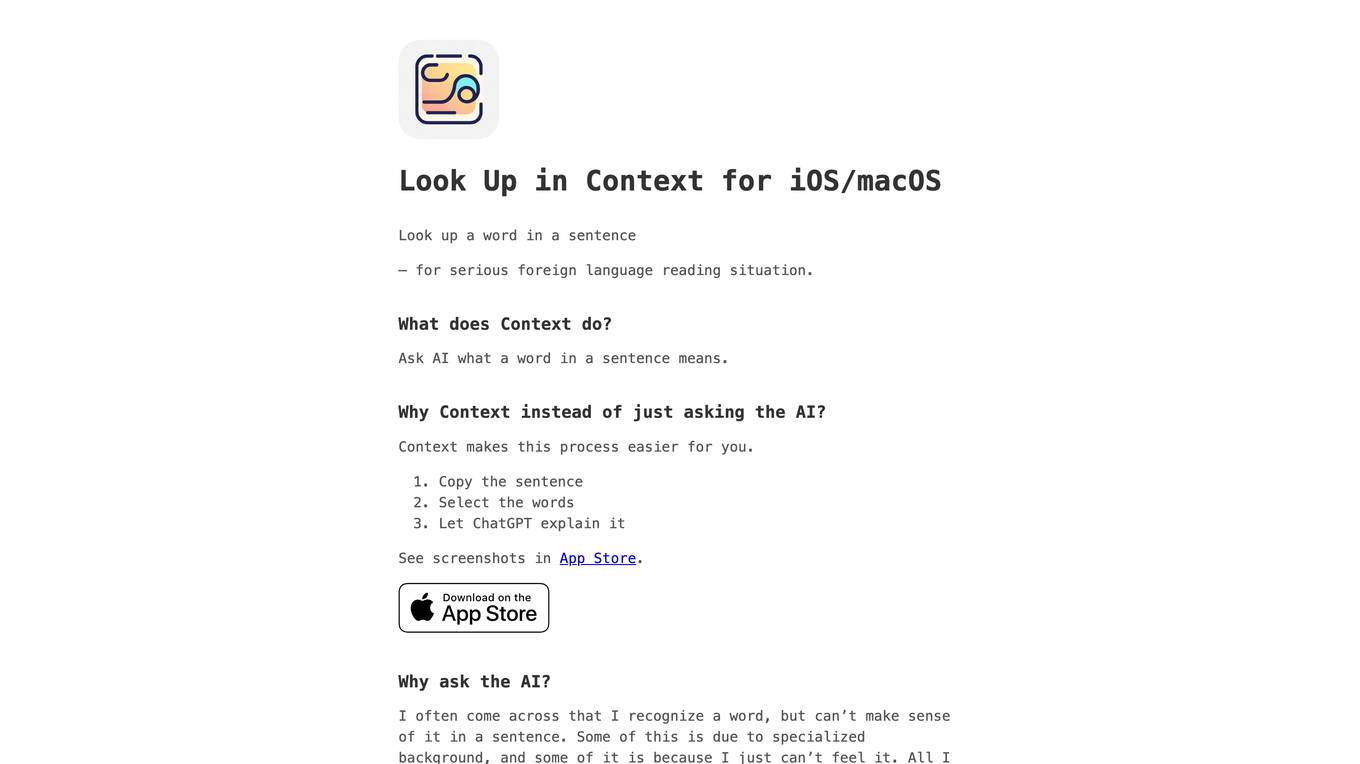
Context
Context is an AI tool designed for iOS/macOS that helps users look up the meaning of words within a sentence, particularly useful for serious foreign language reading situations. By leveraging AI technology, users can easily understand the context of unfamiliar words by asking the AI for explanations. Context simplifies the process of word lookup and provides features like explaining the whole sentence, saving lookups, syncing between devices, and exporting data in Markdown/CSV format. While the app is not free, it offers a free trial with a limited number of lookups before requiring a subscription. Developed by Chen Guo, Context aims to enhance language comprehension and reading experiences for users.
4 - Open Source AI Tools
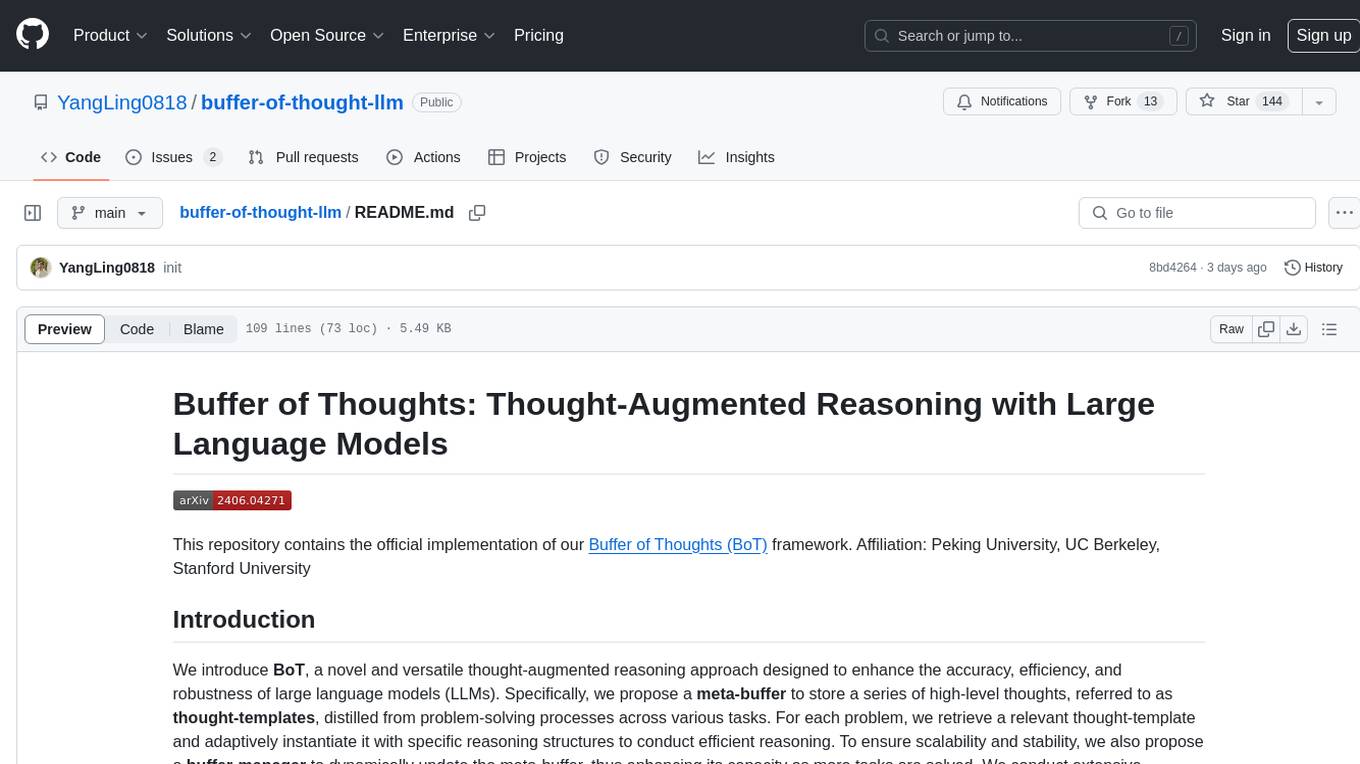
buffer-of-thought-llm
Buffer of Thoughts (BoT) is a thought-augmented reasoning framework designed to enhance the accuracy, efficiency, and robustness of large language models (LLMs). It introduces a meta-buffer to store high-level thought-templates distilled from problem-solving processes, enabling adaptive reasoning for efficient problem-solving. The framework includes a buffer-manager to dynamically update the meta-buffer, ensuring scalability and stability. BoT achieves significant performance improvements on reasoning-intensive tasks and demonstrates superior generalization ability and robustness while being cost-effective compared to other methods.
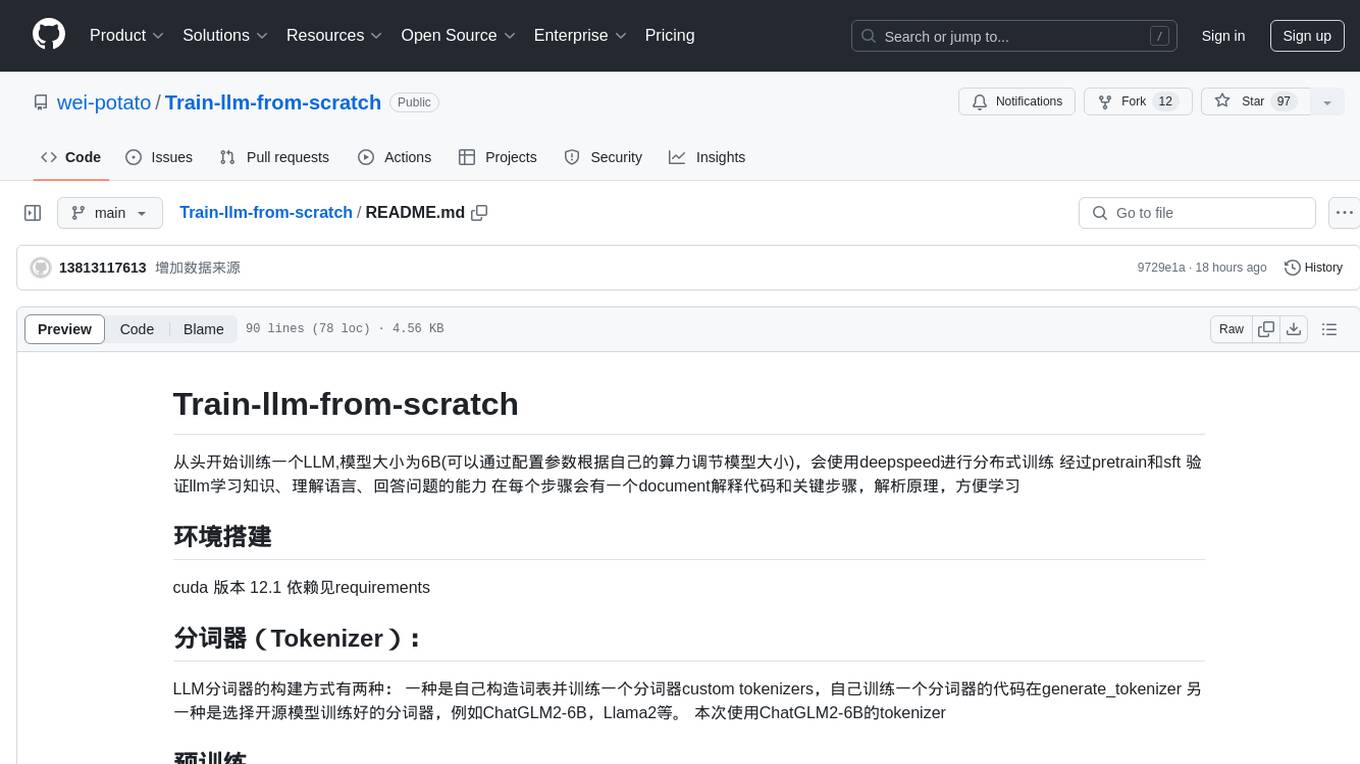
Train-llm-from-scratch
Train-llm-from-scratch is a repository that guides users through training a Large Language Model (LLM) from scratch. The model size can be adjusted based on available computing power. The repository utilizes deepspeed for distributed training and includes detailed explanations of the code and key steps at each stage to facilitate learning. Users can train their own tokenizer or use pre-trained tokenizers like ChatGLM2-6B. The repository provides information on preparing pre-training data, processing training data, and recommended SFT data for fine-tuning. It also references other projects and books related to LLM training.
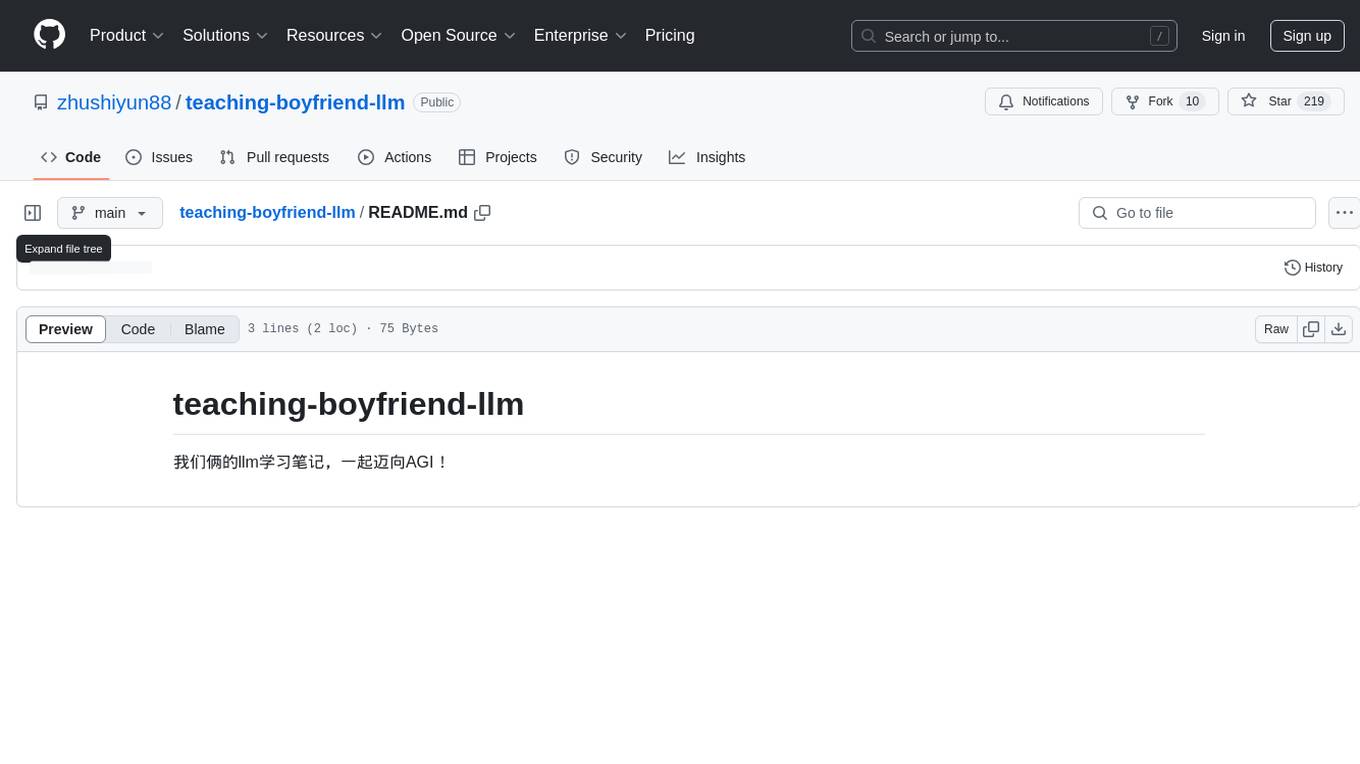
teaching-boyfriend-llm
The 'teaching-boyfriend-llm' repository contains study notes on LLM (Large Language Models) for the purpose of advancing towards AGI (Artificial General Intelligence). The notes are a collaborative effort towards understanding and implementing LLM technology.
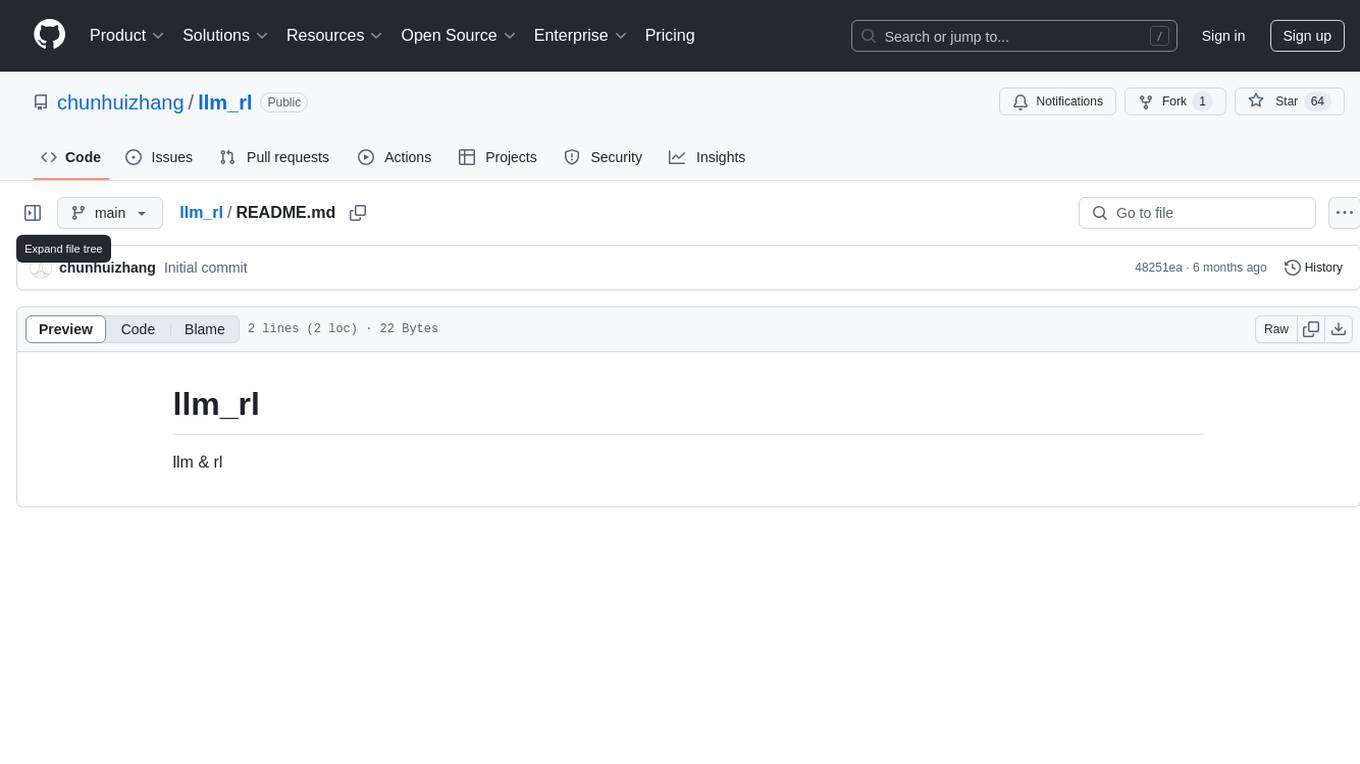
llm_rl
llm_rl is a repository that combines llm (language model) and rl (reinforcement learning) techniques. It likely focuses on using language models in reinforcement learning tasks, such as natural language understanding and generation. The repository may contain implementations of algorithms that leverage both llm and rl to improve performance in various tasks. Developers interested in exploring the intersection of language models and reinforcement learning may find this repository useful for research and experimentation.
20 - OpenAI Gpts
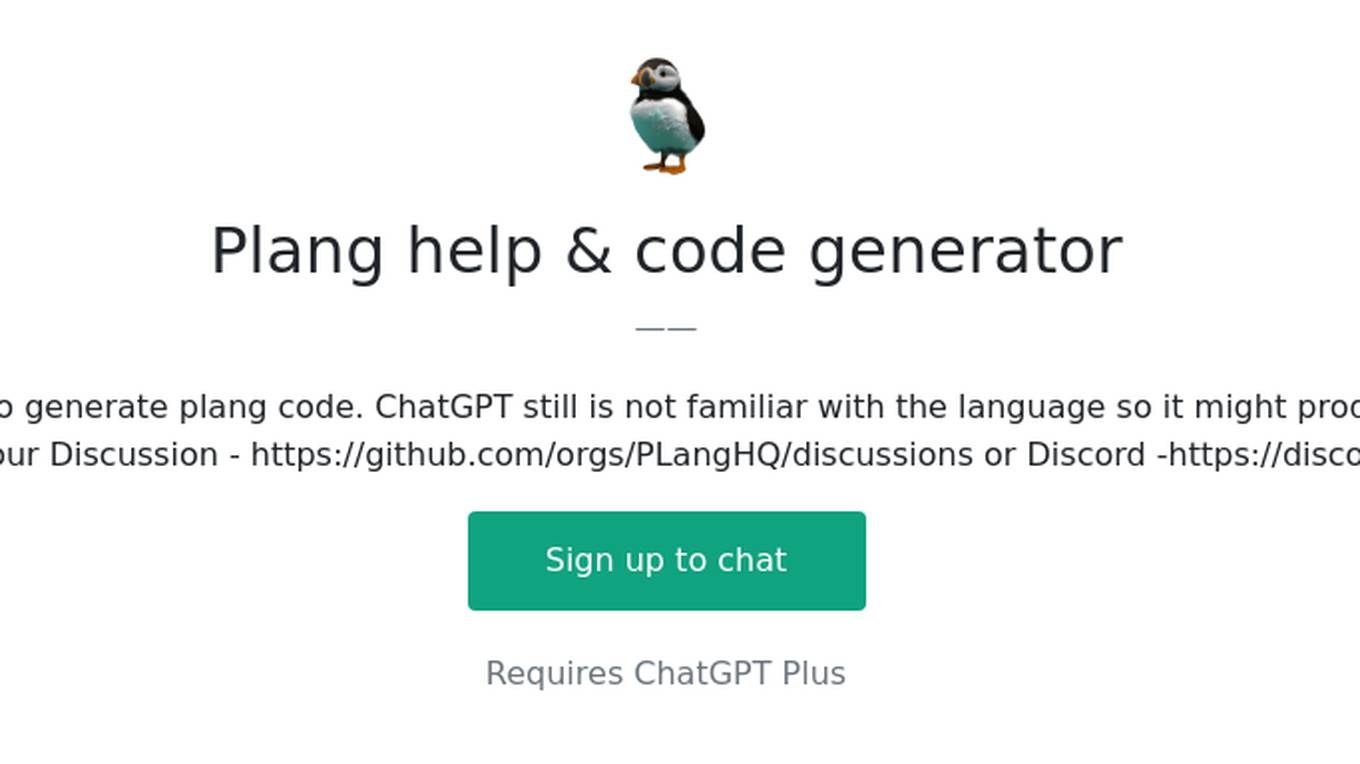
Plang help & code generator
Help you understand what plang is and to generate plang code. ChatGPT still is not familiar with the language so it might produce wrong code. It should be simple to fix, for help come to our Discussion - https://github.com/orgs/PLangHQ/discussions or Discord -https://discord.gg/A8kYUymsDD
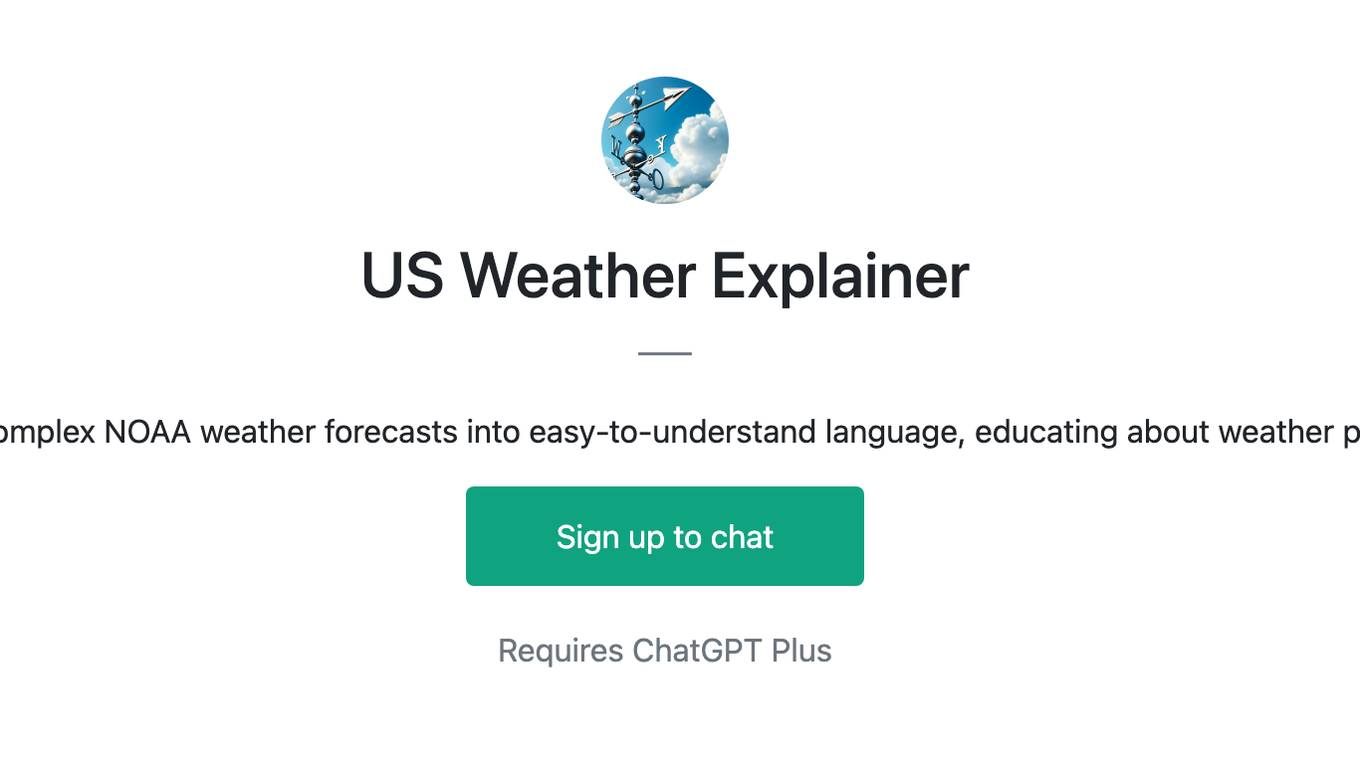
US Weather Explainer
I transform complex NOAA weather forecasts into easy-to-understand language, educating about weather phenomena.
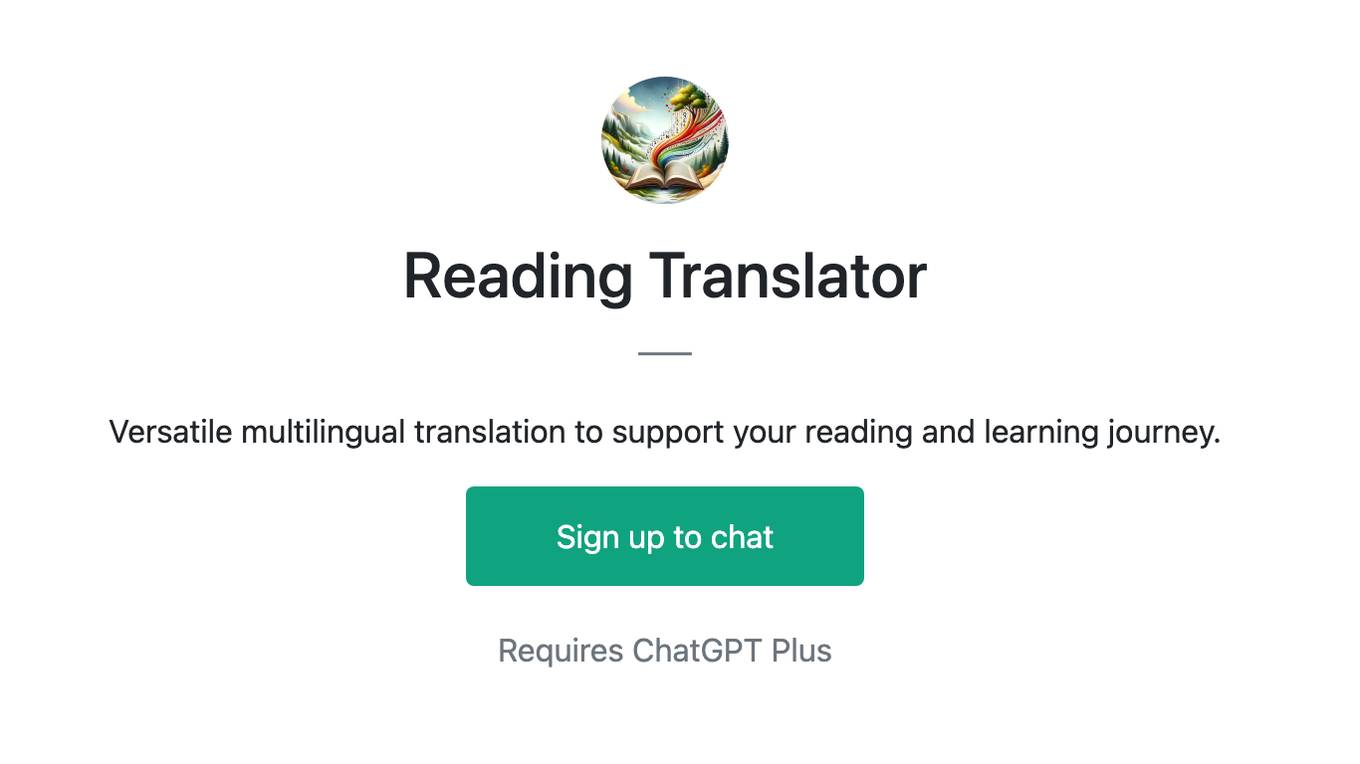
Reading Translator
Versatile multilingual translation to support your reading and learning journey.
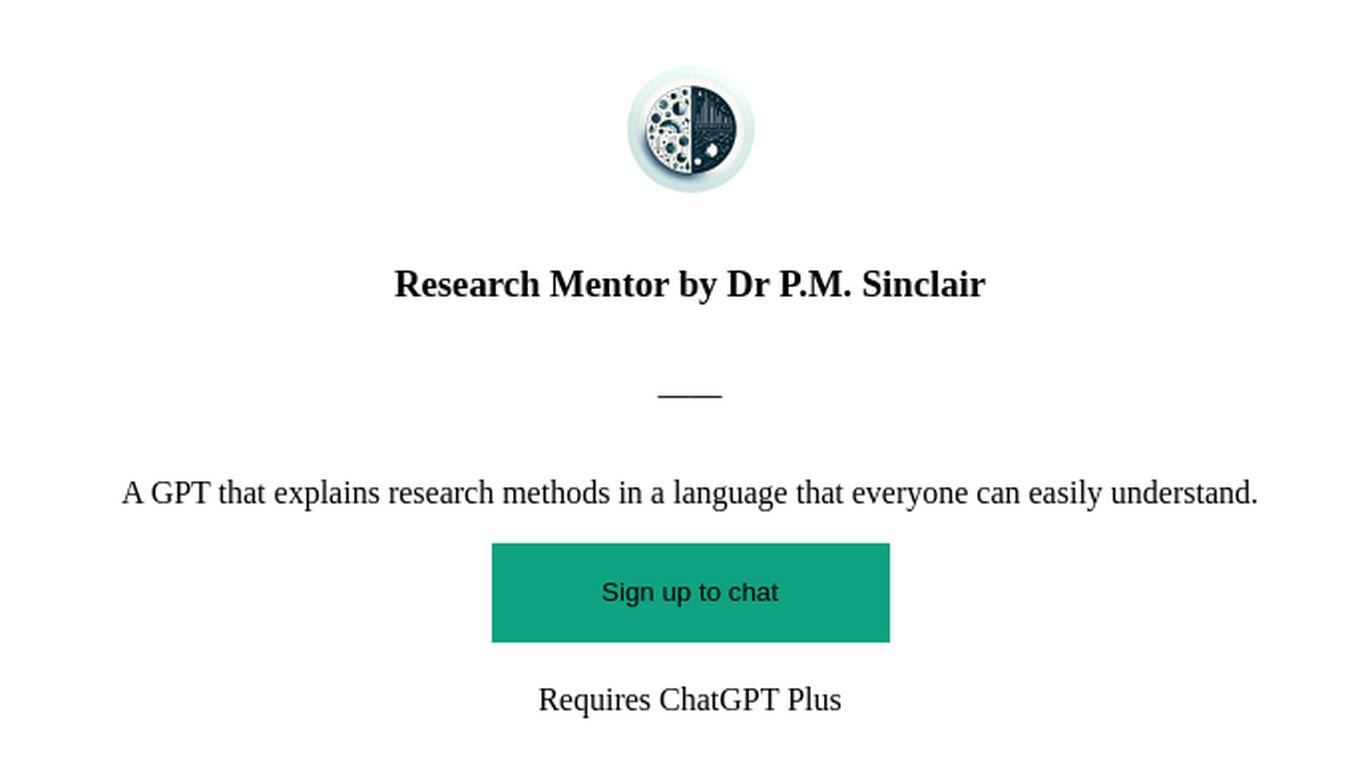
Research Mentor by Dr P.M. Sinclair
A GPT that explains research methods in a language that everyone can easily understand.
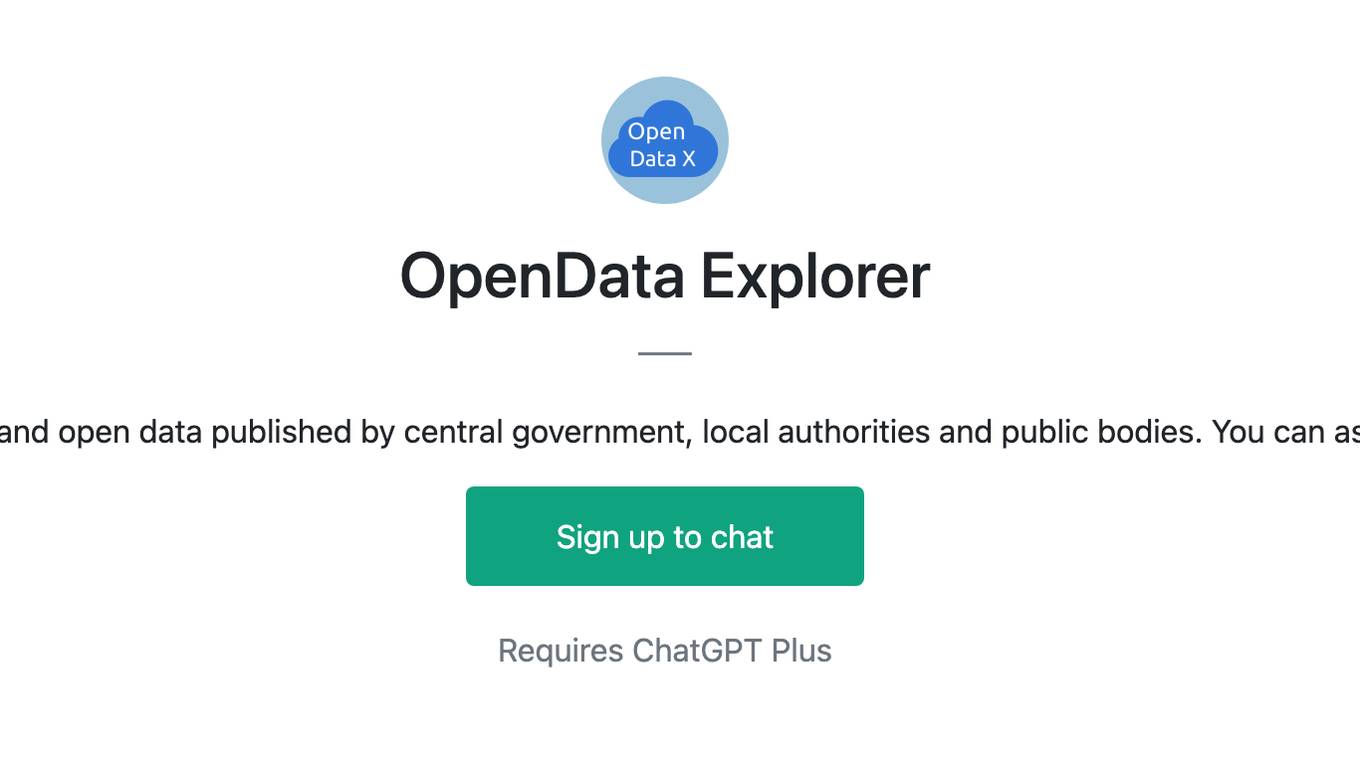
OpenData Explorer
I'll help you access and understand open data published by central government, local authorities and public bodies. You can ask me in your native language.

Furry Love
Your AI-powered pet care assistant! Tailored for both new and seasoned pet owners, it offers customized advice on everything from choosing the right breed to detailed care plans. Understand your pet's behavior, get first aid tips, and enjoy a user-friendly experience in your preferred language.
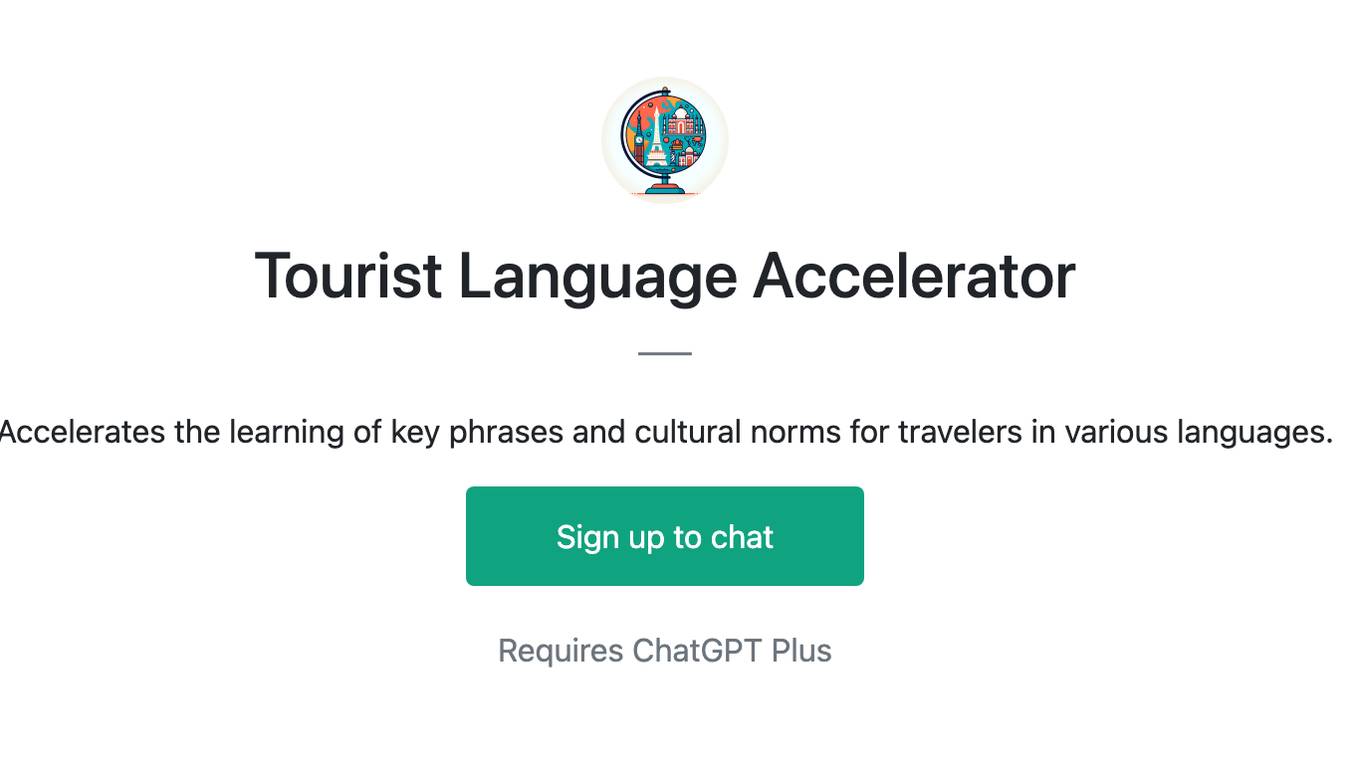
Tourist Language Accelerator
Accelerates the learning of key phrases and cultural norms for travelers in various languages.
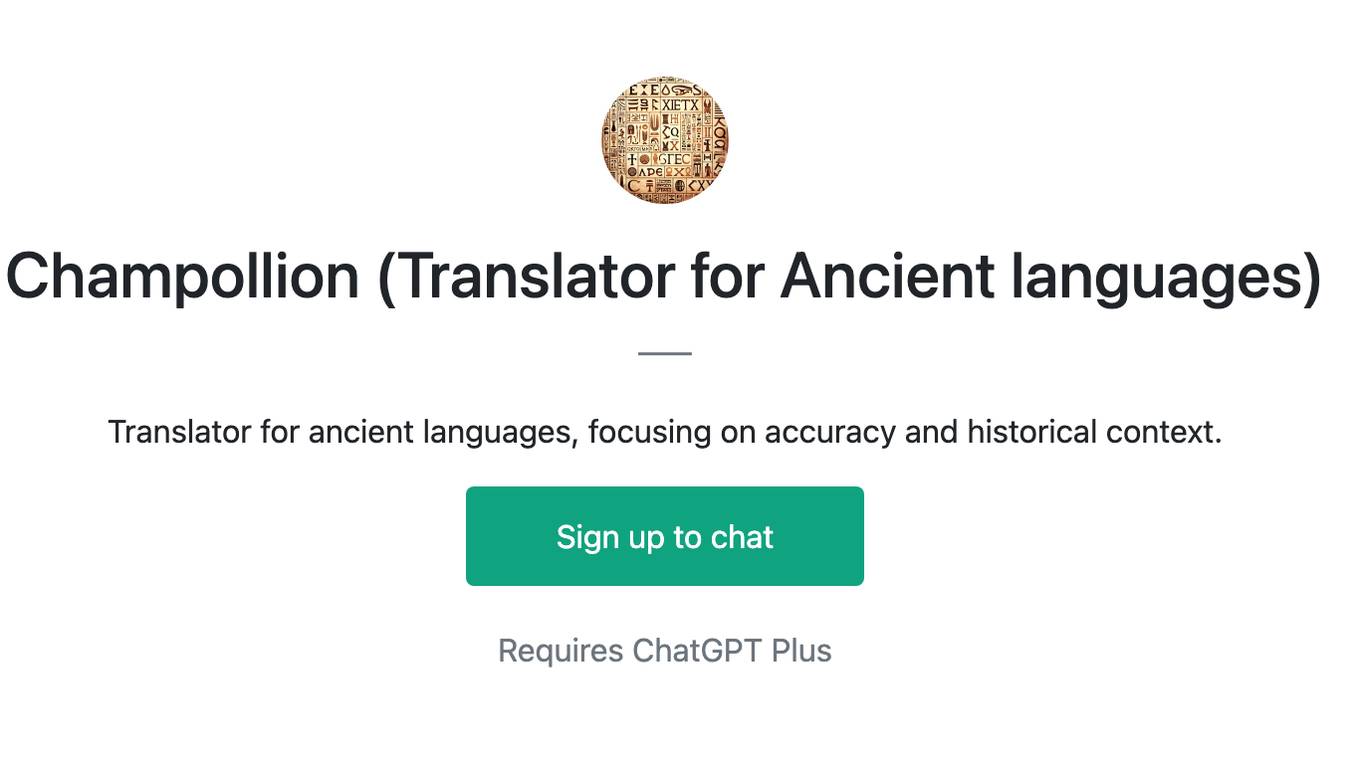
Champollion (Translator for Ancient languages)
Translator for ancient languages, focusing on accuracy and historical context.
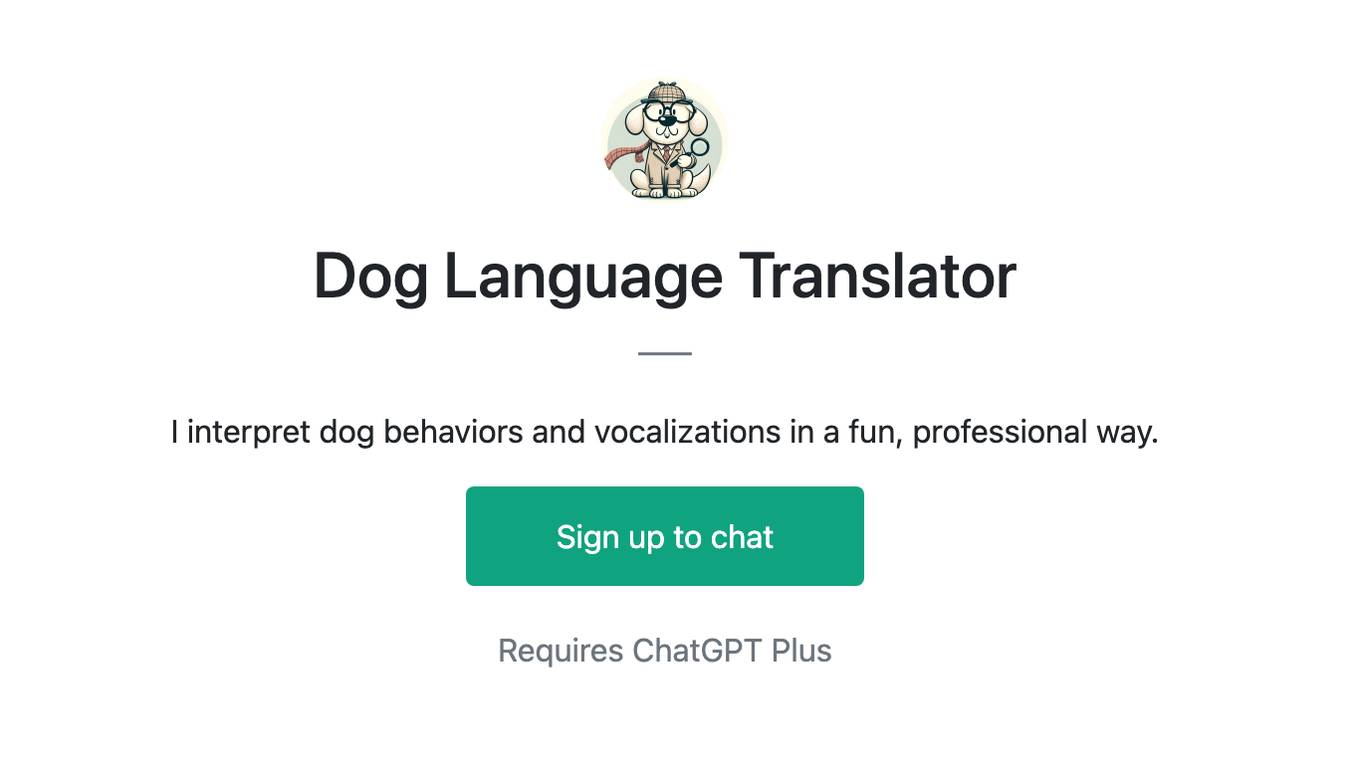
Dog Language Translator
I interpret dog behaviors and vocalizations in a fun, professional way.
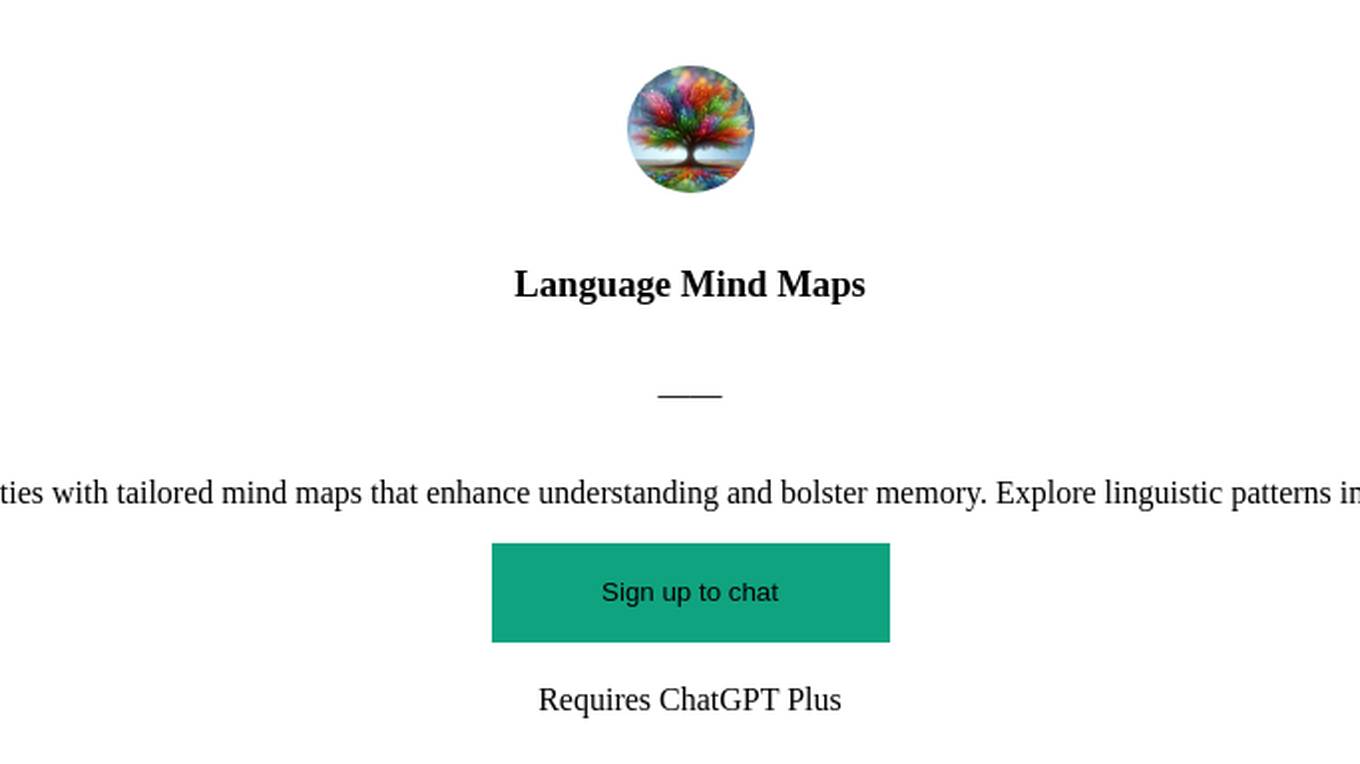
Language Mind Maps
Master language complexities with tailored mind maps that enhance understanding and bolster memory. Explore linguistic patterns in a visually engaging way. 🧠🗺️
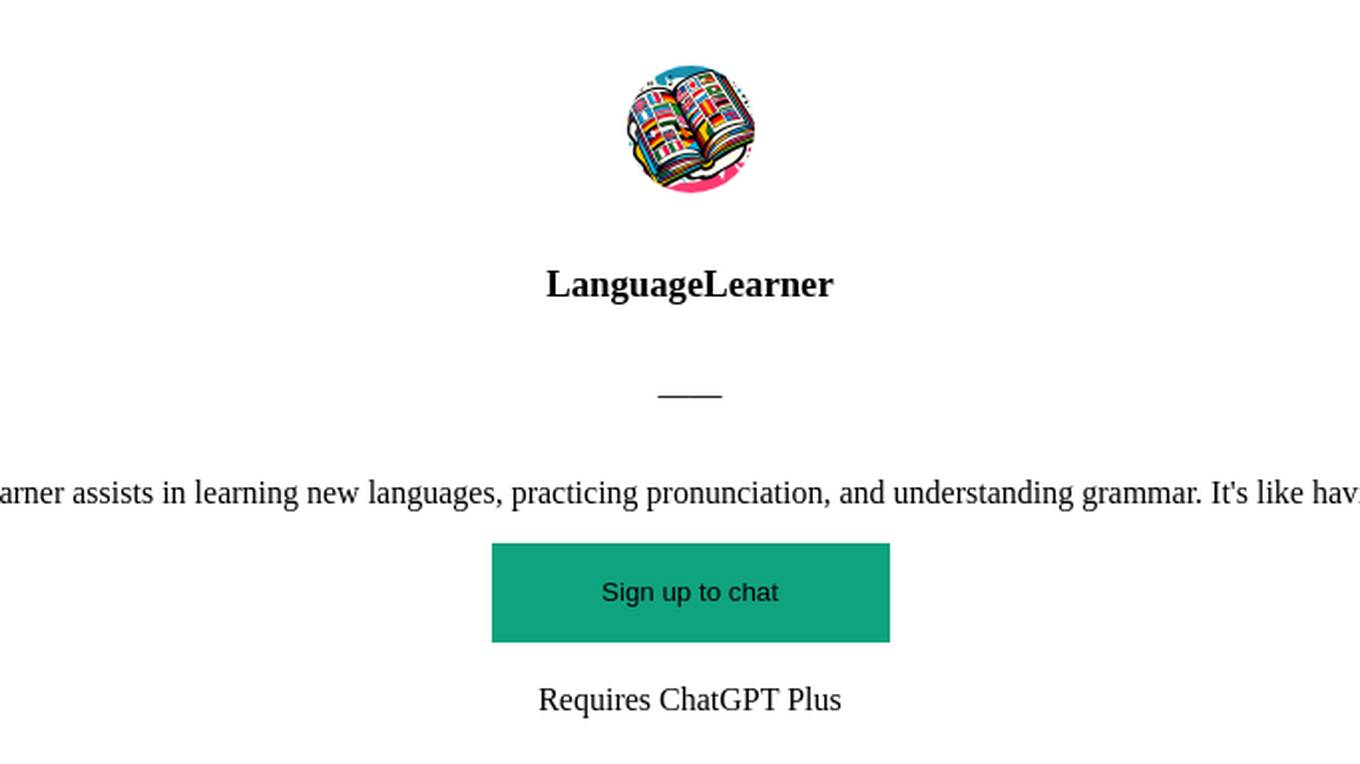
LanguageLearner
A linguistic companion, LanguageLearner assists in learning new languages, practicing pronunciation, and understanding grammar. It's like having a language tutor available anytime.
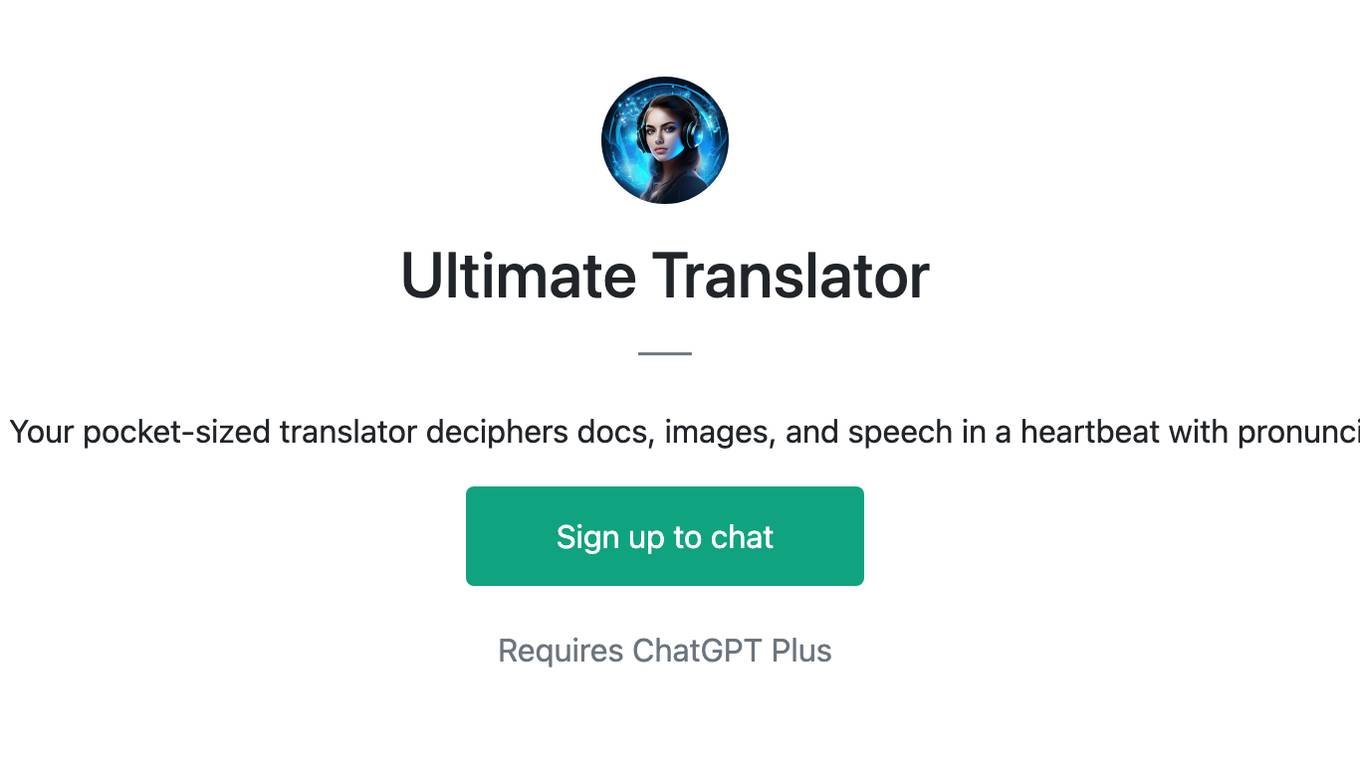
Ultimate Translator
Speak, snap, and understand the world. Your pocket-sized translator deciphers docs, images, and speech in a heartbeat with pronunciation guides and motivational boosts!

Learn Hebrew
Learn Hebrew Via Flashcards. We will show you a word, phrase or sentence and you will have to translate so we know if you understand or not.
